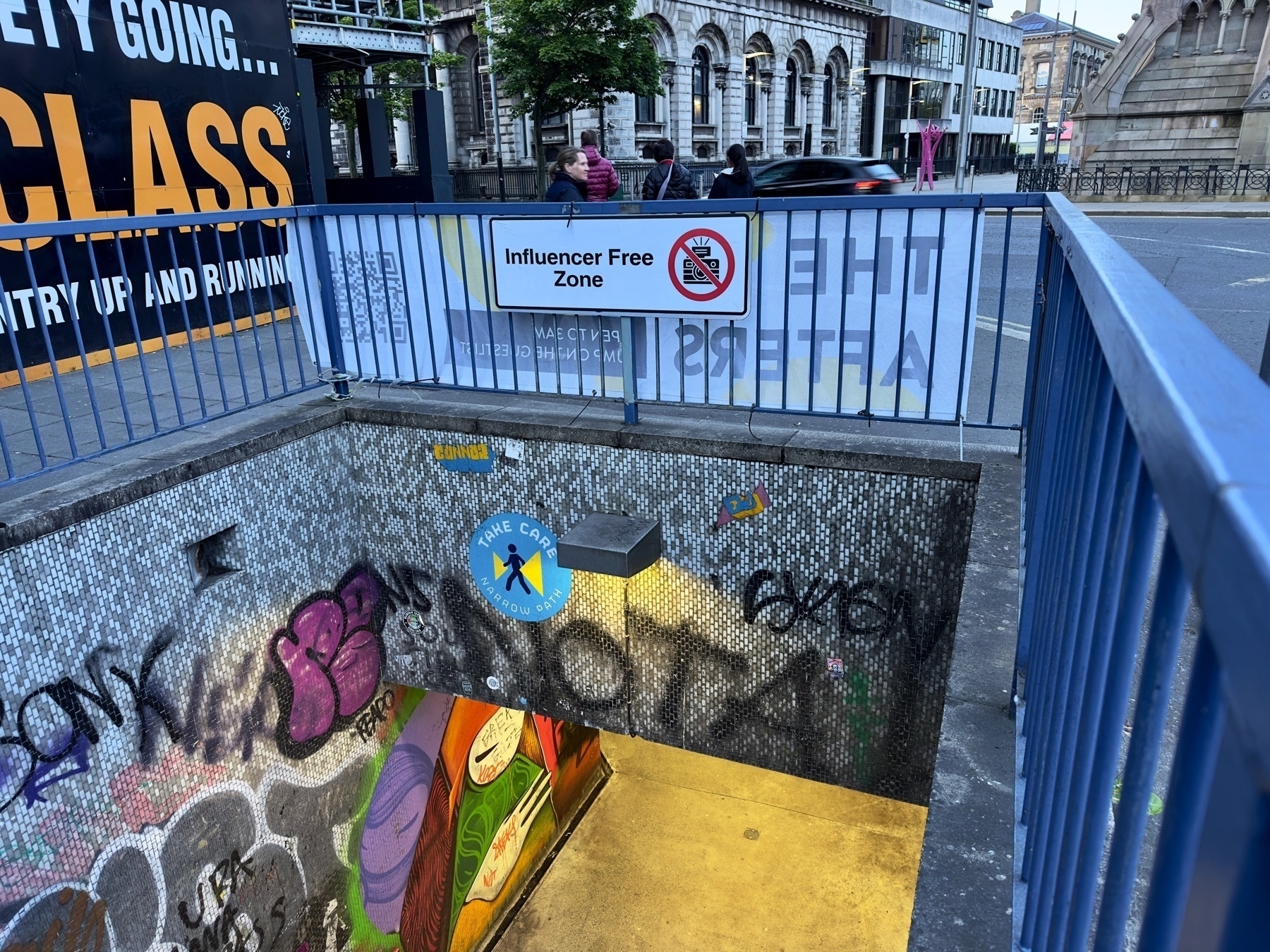Me and my Guinness “Stoutie”.
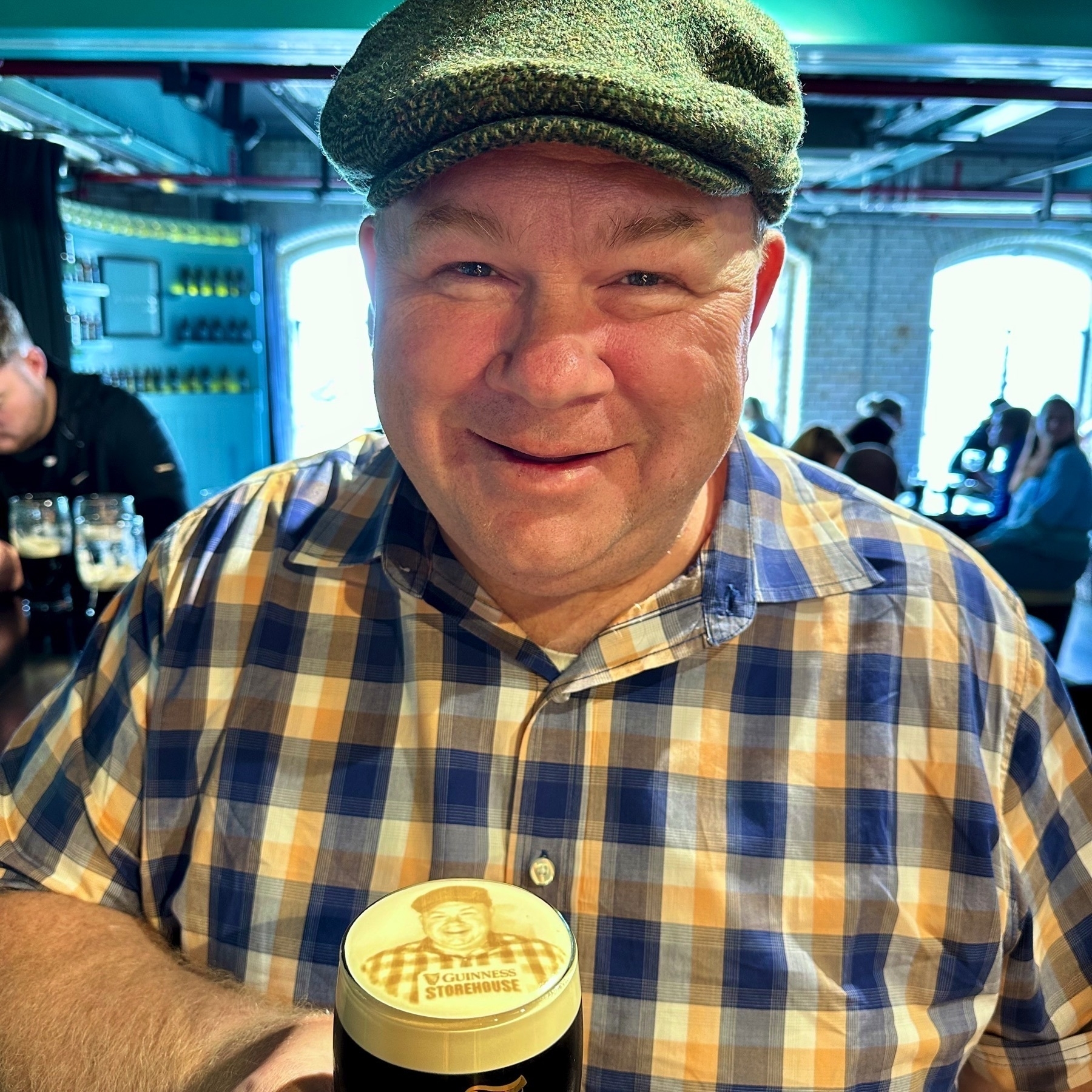
Guinness Storehouse
We joined thousands of our best friends on the Guinness Storehouse visit today. As a fan of Guinness this was a Father’s Day highlight for me. It was not a brewery tour, but instead more of a history of Guinness itself. I liked seeing some of the archive of advertisements over the years. And we got to get a “Stoutie”, a selfie printed into the head of the Guinness. We finished with lunch at 1837 Bar & Brasserie and my favorite beef stew of the trip. Awesome.
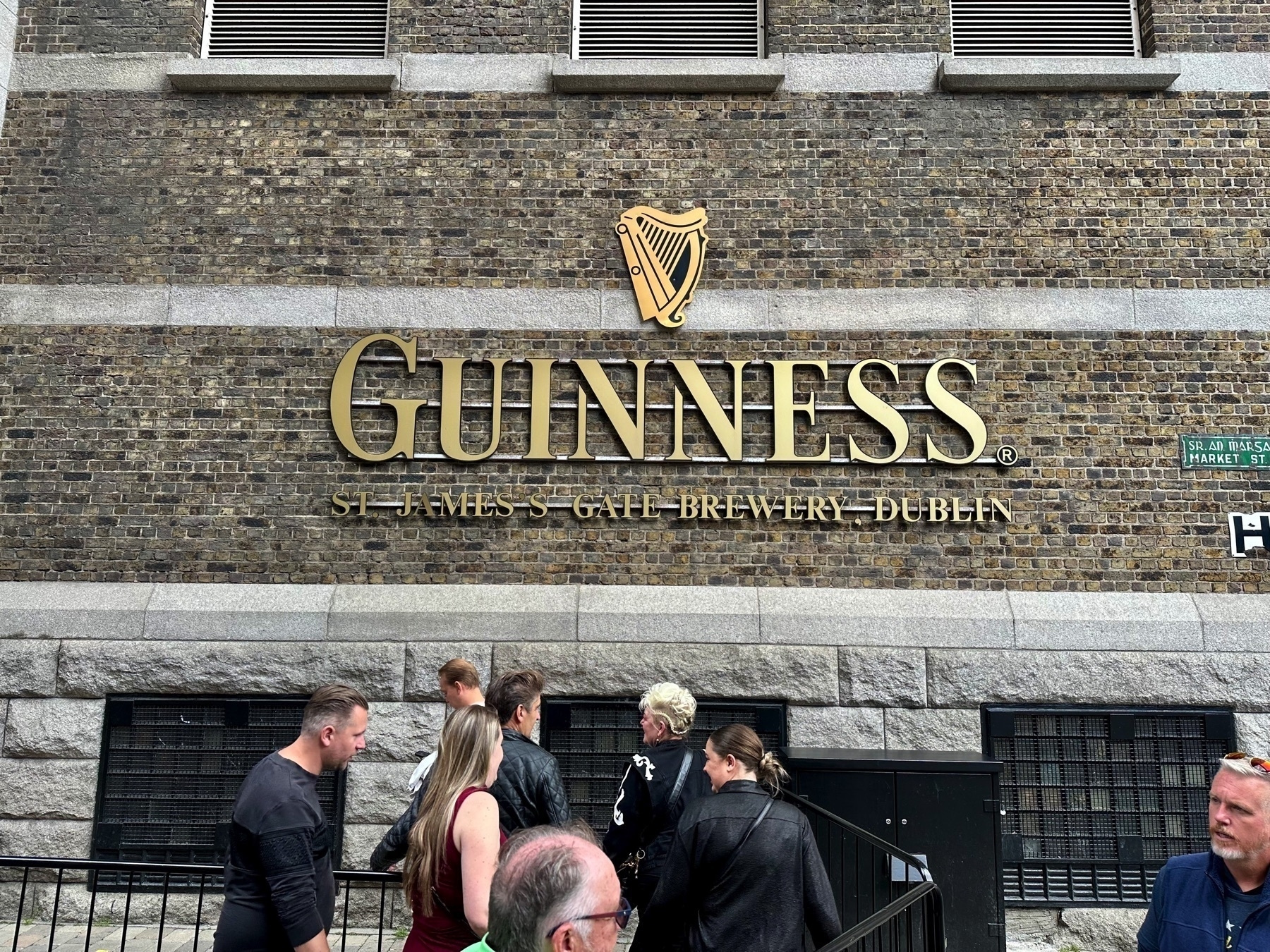
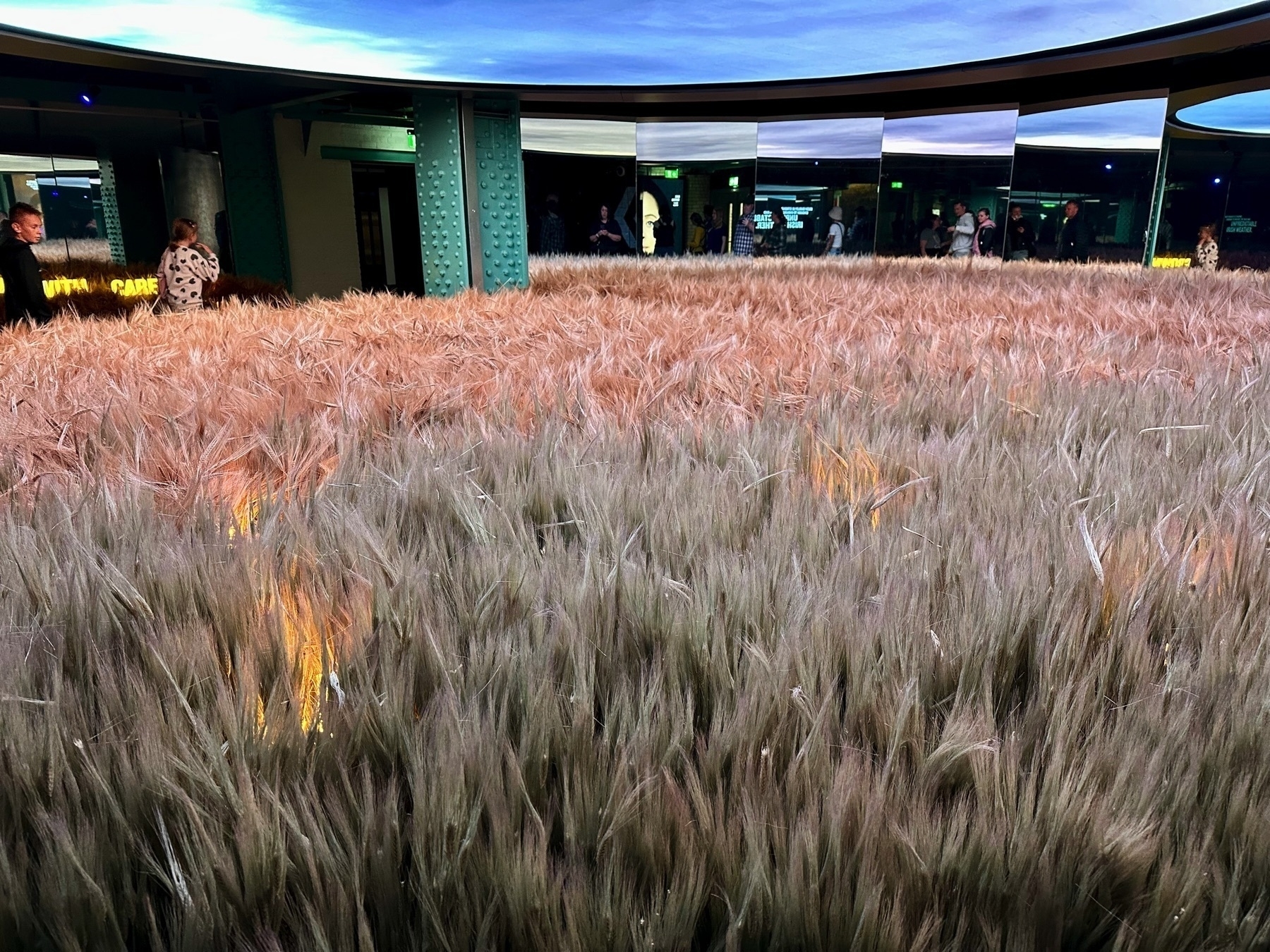
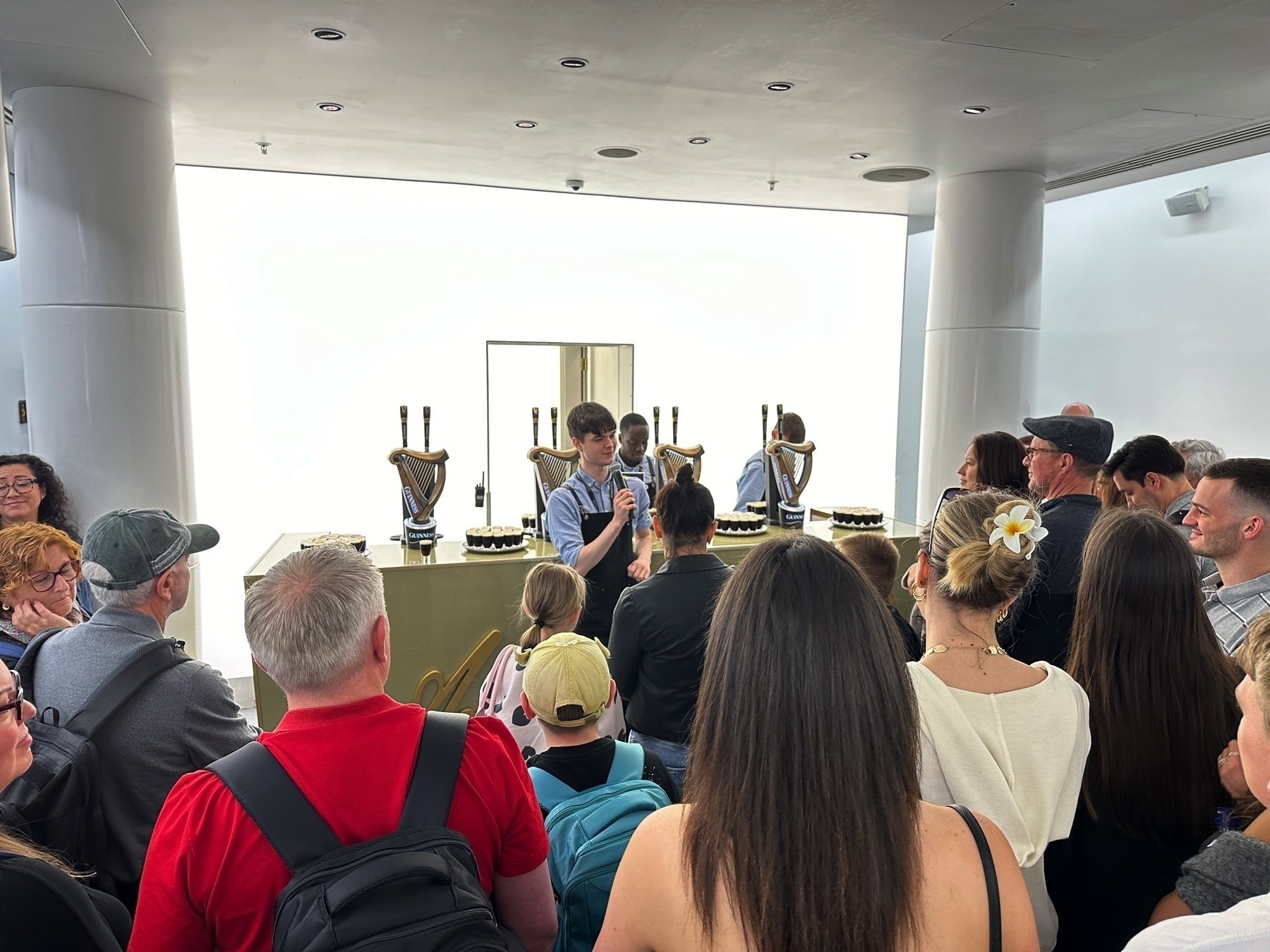
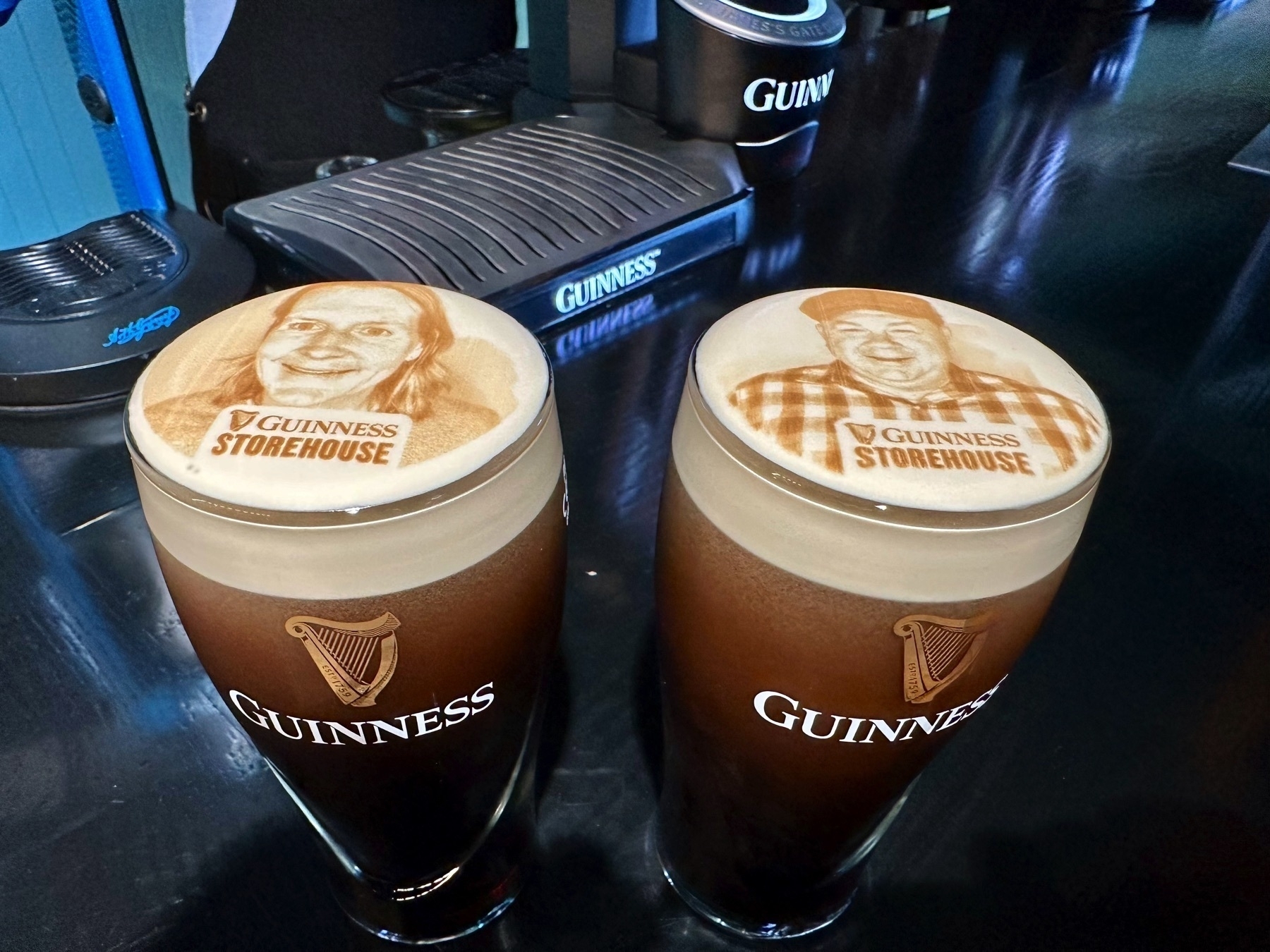
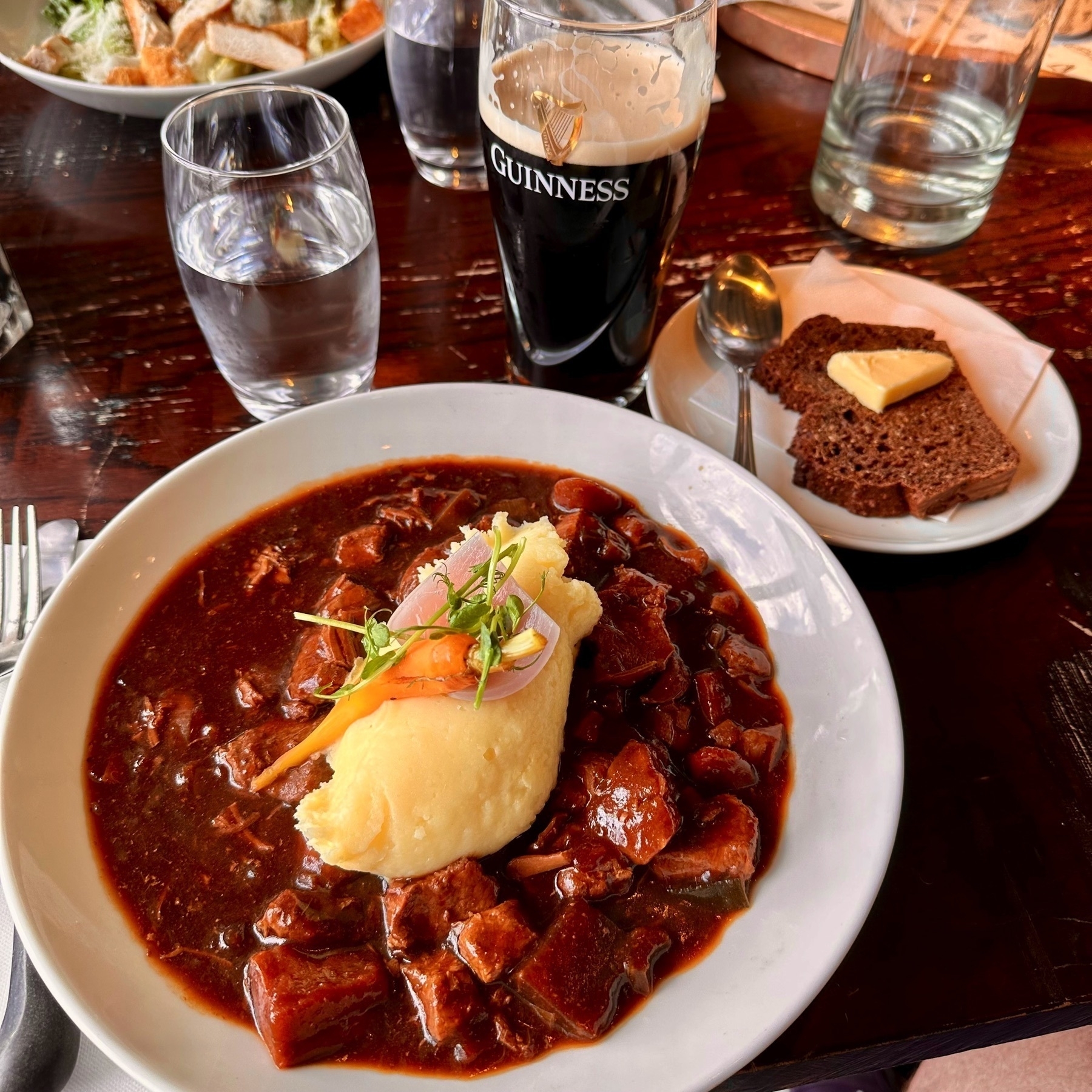
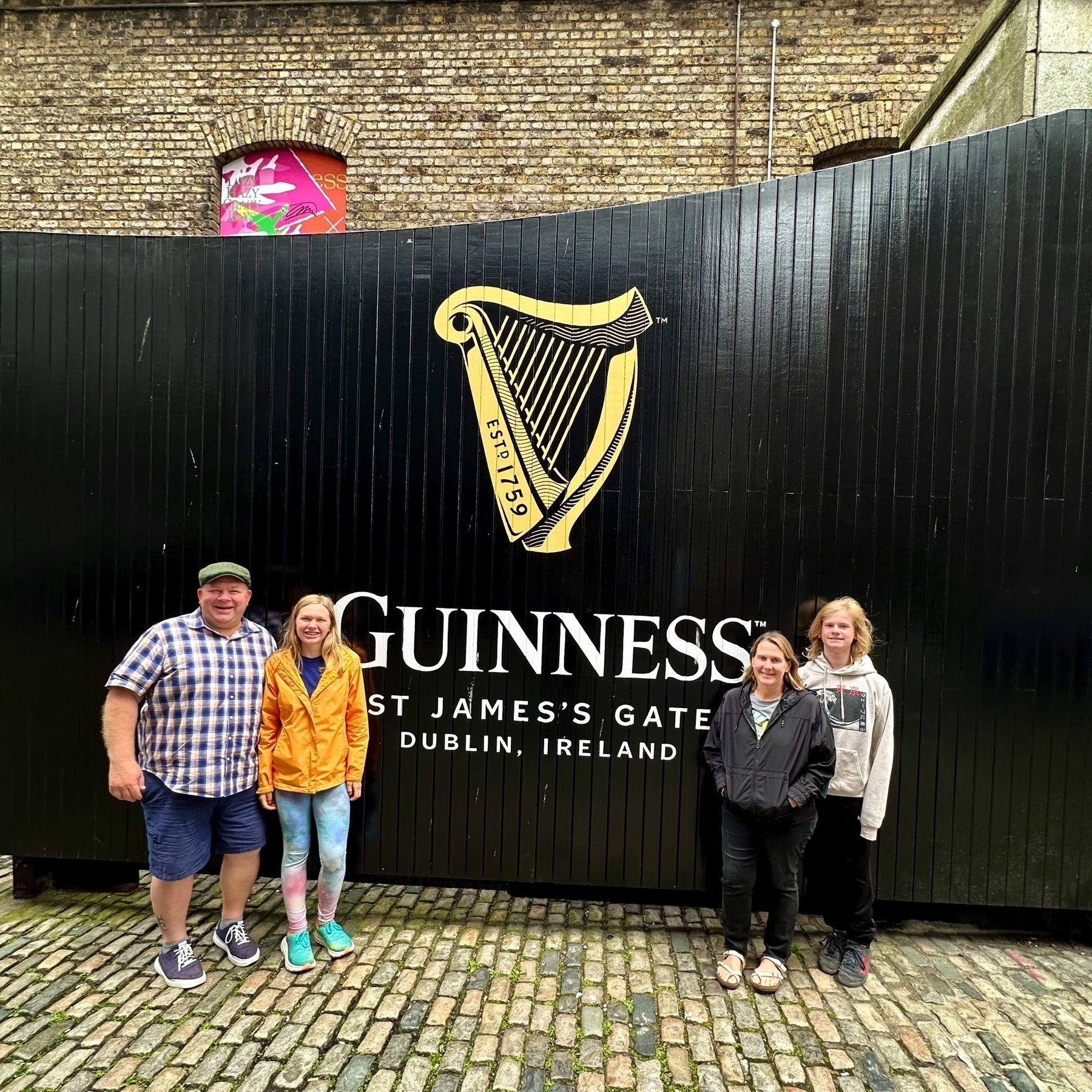
A fish riding a bicycle! (at Guinness Experience in Dublin)
Kilmainham Gaol Museum
Visiting the Kilmainham Gaol Museum was one of the hardest tickets to get on our trip. Tammy had to be online at the exact right time before they sold out for each session. Kilmainham Gaol was a prison that opened in 1796 and held thousands of inmates over the history. The most notable part of the tour is the political prisoners that were held here during its last phase of operation in the early 1900’s. It was an interesting and sobering tour — you are standing in the very spots where many people were executed over the years. During the famine the prison held over 5 times the capacity of people it was supposed to.
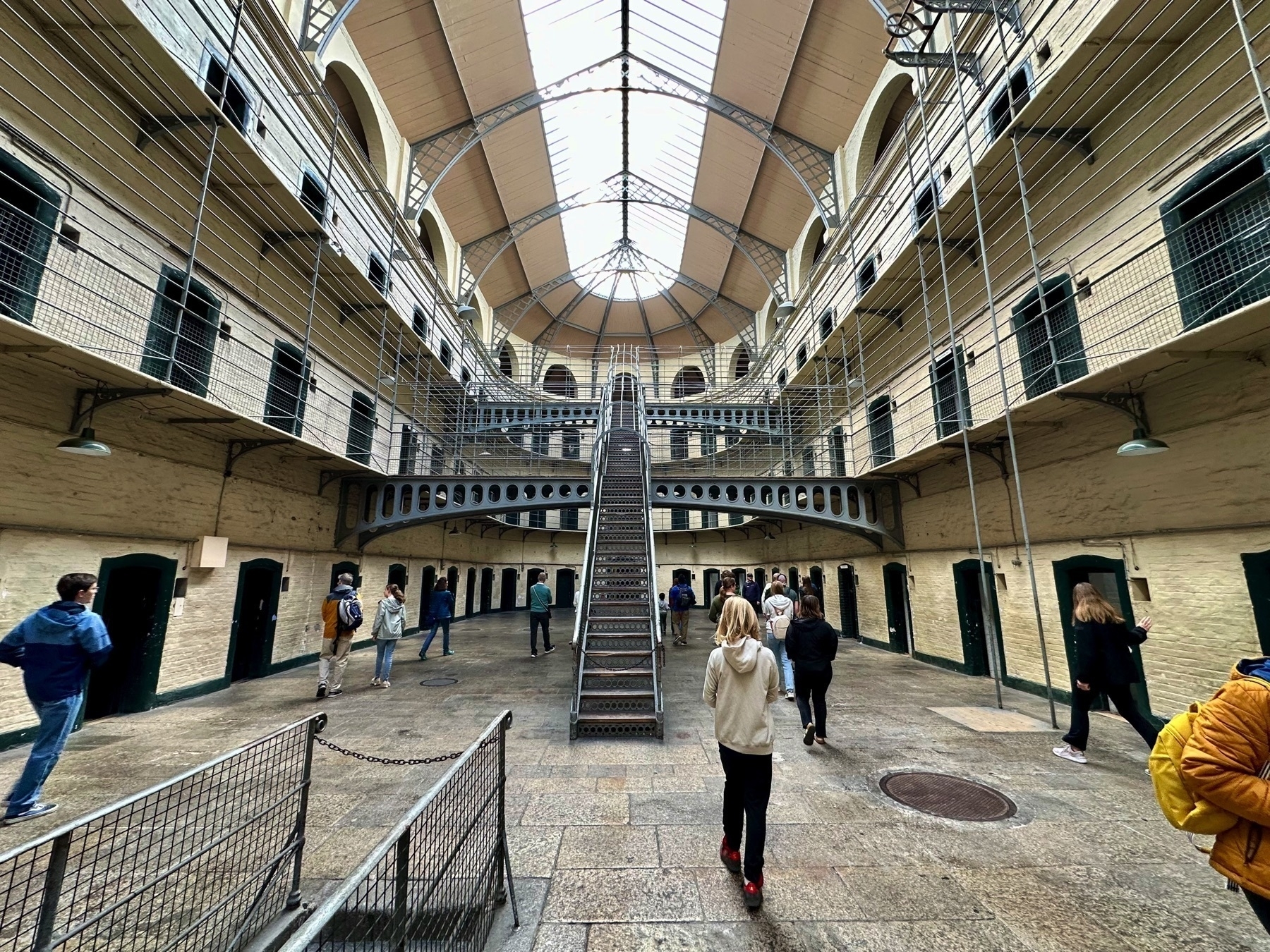


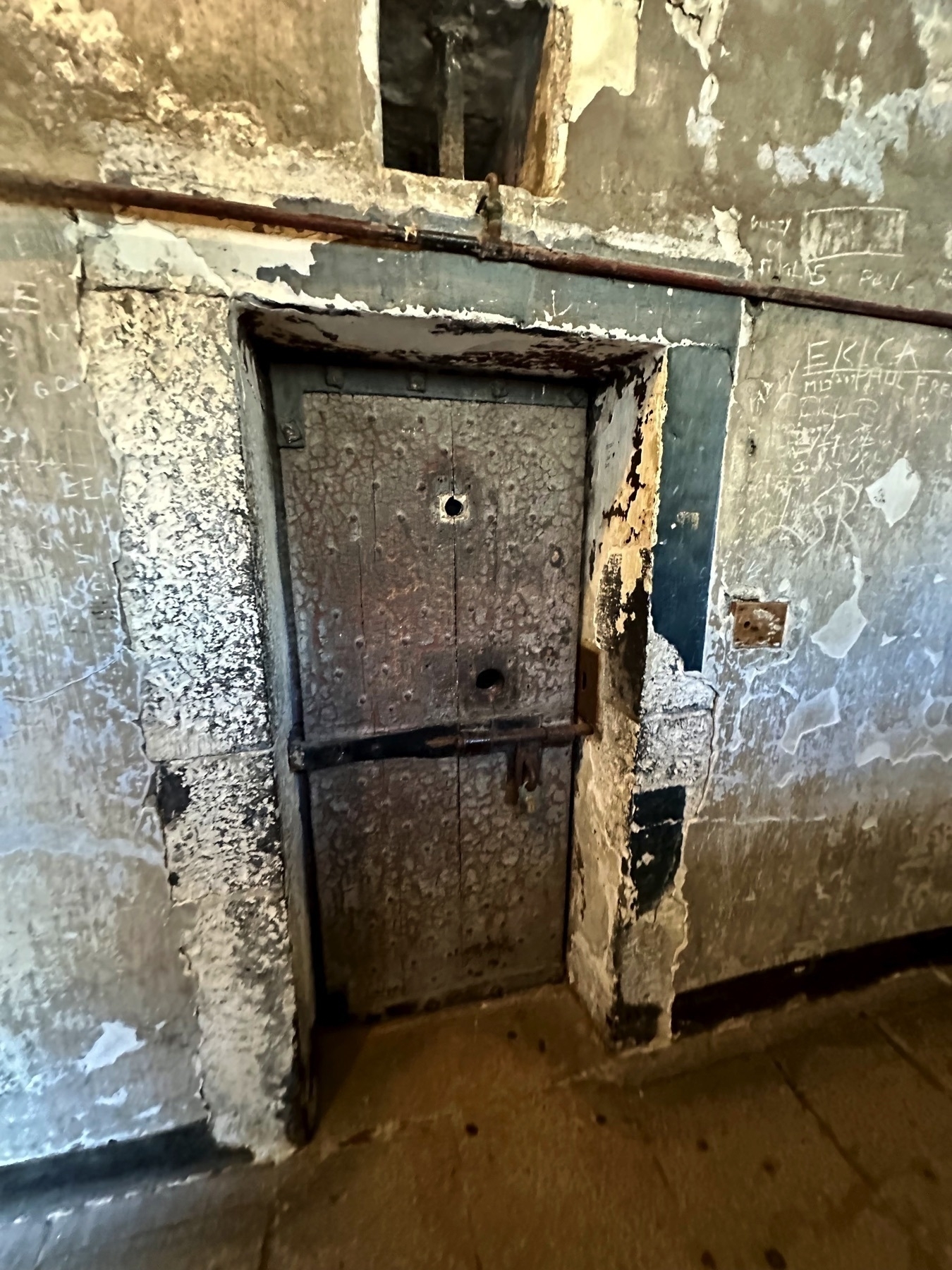

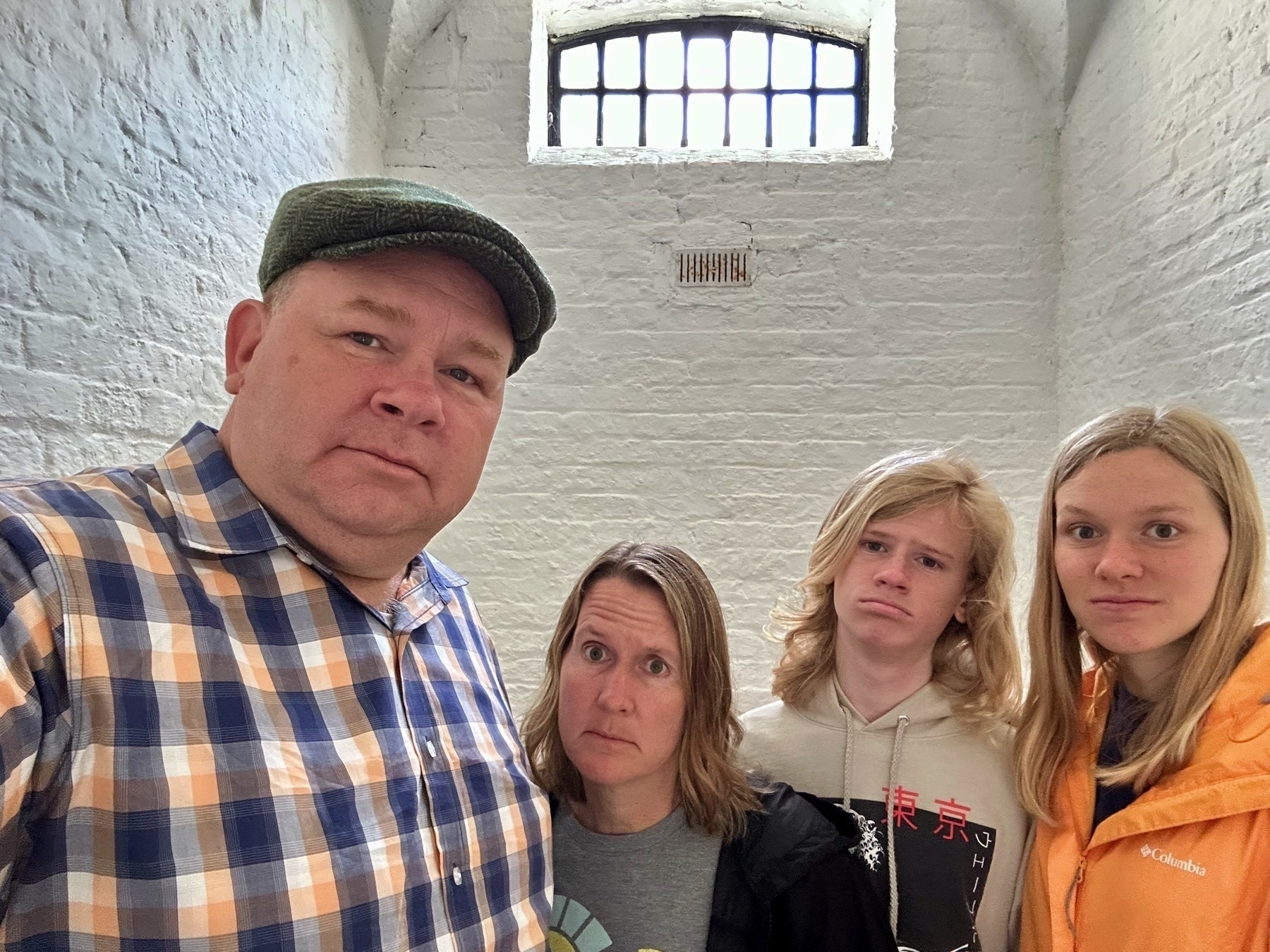
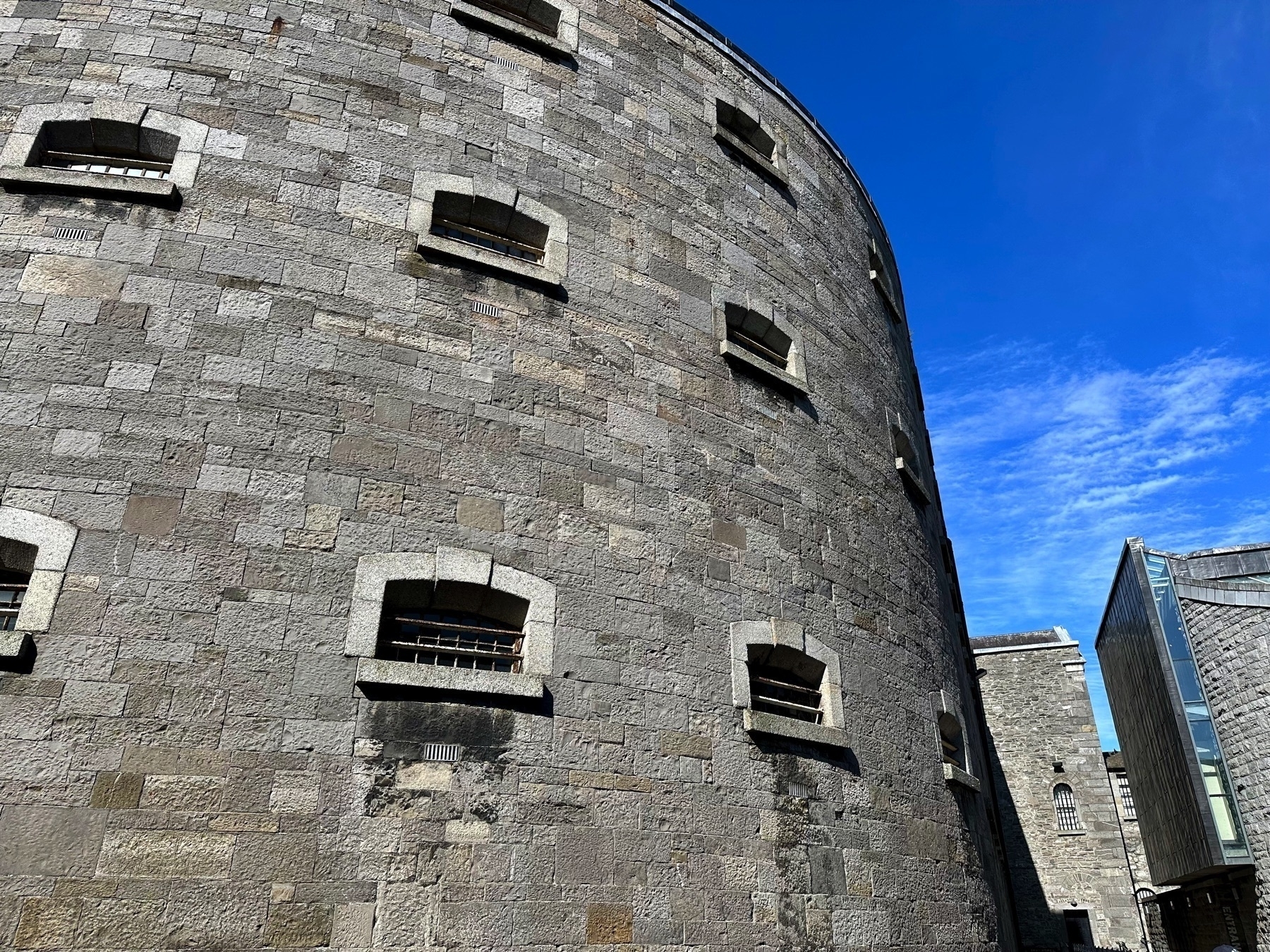
Driving in Ireland
Today, day 15 of our Ireland 2024 trip, we returned the SEAT Leon that we rented (hired?) from New Way for our trip. All in over those 15 days I drove the car 1,907 kilometers, or 1,185 miles. I’m happy to report that I returned the car free of scratches, with all mirrors still on the car, and no worse for the couple weeks.
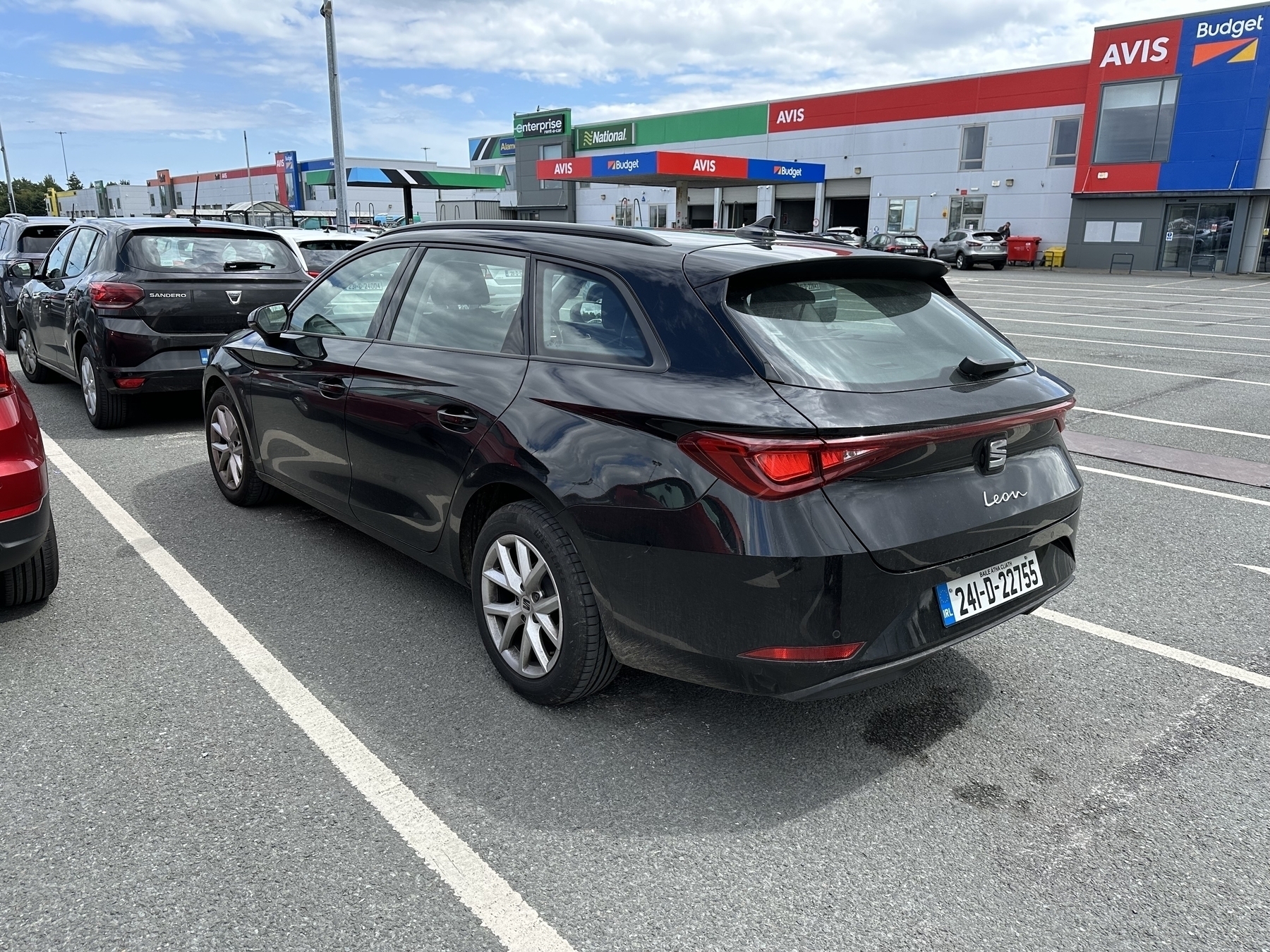
We chose to use Google Maps for navigation. And Tammy was my vigilant copilot. She was always looking and helping navigate round abouts and a variety of traffic scenarios!
So, how was driving in Ireland?
Everything is Opposite
I had never driven a right-hand drive car so that was all new. I decided to opt for a manual transmission and I’m glad I did. Driving a manual made me always connected to what the car was doing and frankly there were some roads where the manual just did a much better job. Happily the gear box layout is the same, and the pedals are the same too. Clutch on the left foot just like you would hope.
When we were in Turks & Caicos I had to drive on the left hand side of the road, however, it was in a left-hand drive car. So here in Ireland I was on the left-hand side of the road, but I was also in a right-hand drive car. Having everything be opposite was much better. Just like at home the driver is closer to oncoming traffic. Just on the other side.
After a few days of driving I got a bit more comfortable with the opposites, but it required constant vigilance. I needed to think through every turn and be much more aware of where I was looking. Again everything was opposite and you could never enter that habitual autopilot like we do when we drive. Taking a right turn always felt odd since that is a risk-free turn at home, but here is where you are crossing oncoming traffic.
Again, just all opposite world but I adapted good enough.
Crazy Small Roads
In addition to everything being opposite the roads are often just tiny. Like really tiny. Often times you cannot fit two cars on the road and have to watch for turnouts on the road and stop to let the other cars go through. Additionally, there are no shoulders as the roads are most often fenced in or lower than grade. So let’s say you had to get out the way of oncoming traffic? At home you could decide to leave the road and go into the ditch. There is no ditch. In fact, there is no way you could leave the road. You are in a slot care lane and there is no where to go.
The big highways were fine. The M designated roads were fast and divided highways. But in the smaller towns and rural areas the R roads required a lot of vigilance. I found it surprising that the speed limit on these roads would be 80 km/h, or even 100 km/h. You’re driving at those speeds right in front of houses and businesses. There are driveways that exit right onto a 100 km/h road which I’m still confused how that works.
Feedback
So, I think I did good but I figured I’d ask the family for feedback.
Tammy: ★★★★★ (for American driving in Ireland)
“He did a great job!”
Mazie: ★★★★★
“Balances safety and assertiveness very well. I sometimes felt like I was on a rollercoaster ride as we zoomed around the corners but I always knew he was one step ahead looking out for any danger.”
Tyler: 🤷♂️
“I mostly slept.”
Ireland 2024 Log - Day 15
Weather: Excellent day. Warmer day today.
- Depart Tubbrid Castle at 8:44 AM.
- Drive to Dublin.
- Pastries at Bua Coffee trailer.
- Took class at Experience Gaelic Games and learn Handball, Hurling, and Gaelic Football.
- Scup Ice Cream.
- Fill up rental car with gas.
- Return rental car in great shape — no scratches and no damage.
- Get taxi to Hard Rock Hotel Dublin. Luggage barely fits in the taxi.
- Delicious pizza at Pi PIzza.
- Experience EPIC: Irish Emigration Museum.
- Walk back to Temple Bar district.
- Tyler and Jamie get crêpes at Cloud Nine Temple Bar.
- Jamie gets a pint of Guinness at Norseman Temple Bar.
- Jamie, Tammy, and Tyler share a double cheeseburger from Bunsen and are floored at how good it is.
- Tammy and Mazie go for a walk.
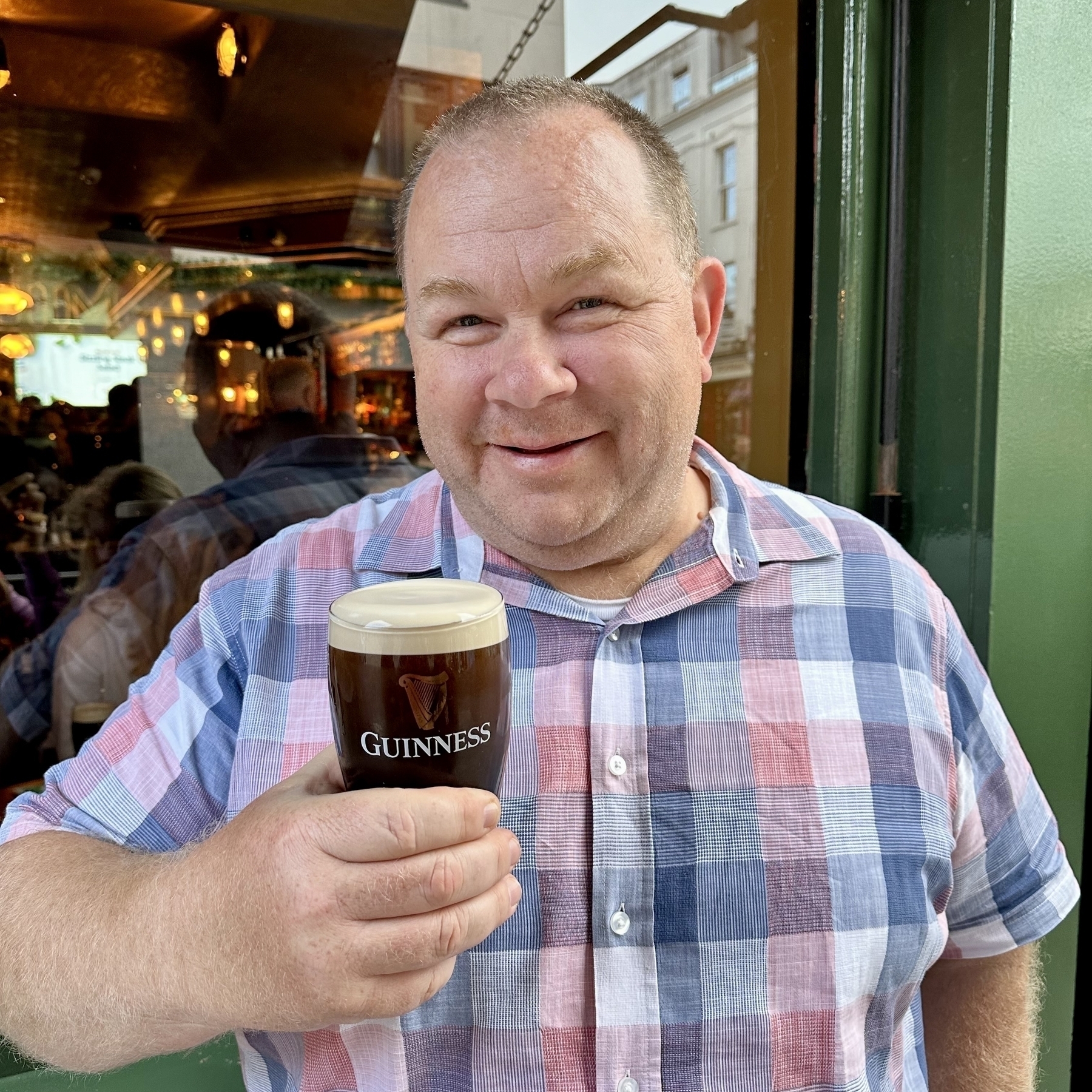
Jump to day 1, 2, 3, 4, 5, 6, 7, 8, 9, 10, 11, 12, 13, 14, 15, 16, 17, 18 or see Ireland 2024 Collection.
The Samuel Beckett Bridge over the River Liffey from the Sean O’Casey Pedestrian Bridge.

On the Sean O’Casey Pedestrian Bridge crossing the River Liffey.
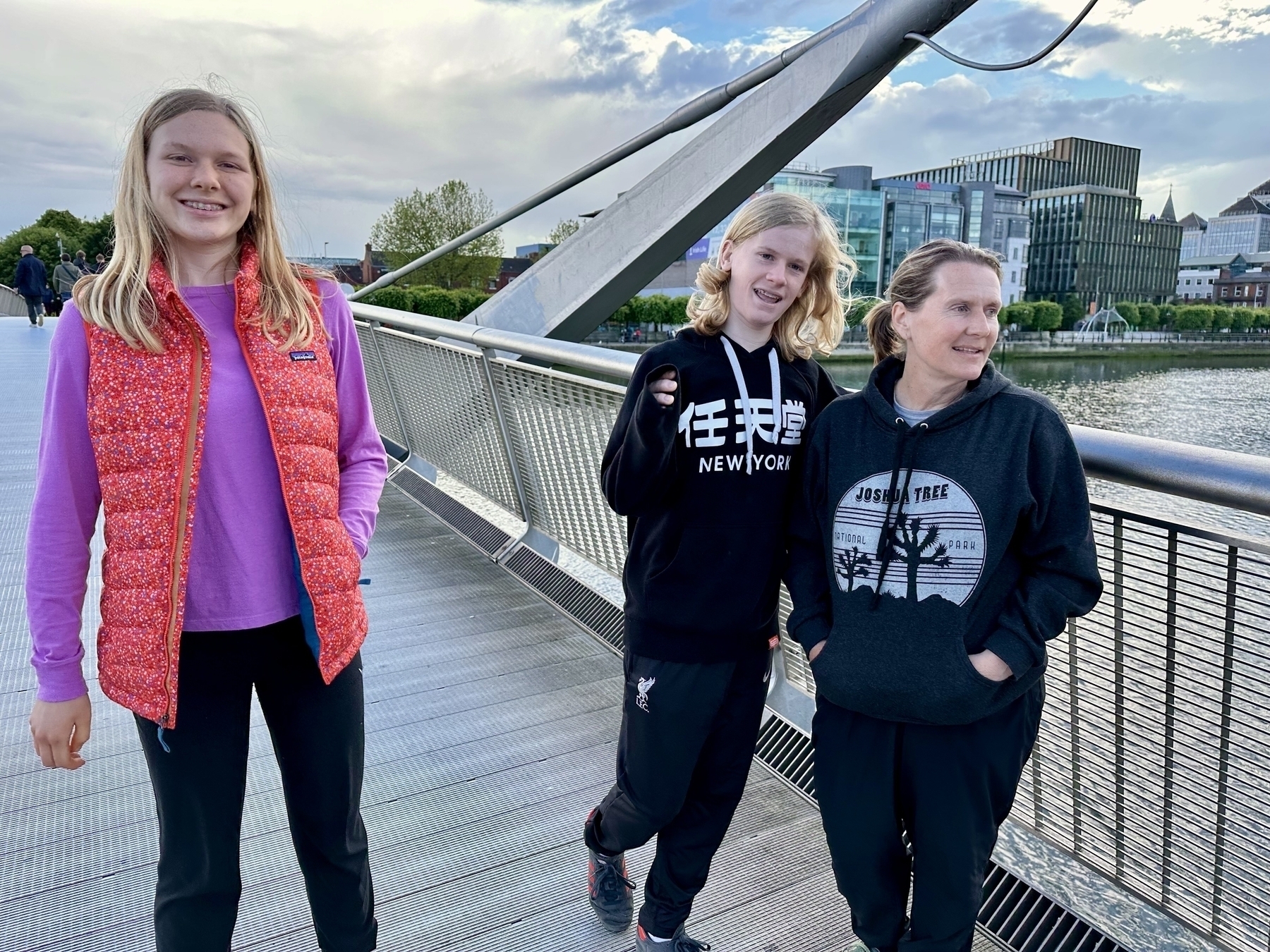
EPIC: The Irish Emigration Museum
This evening we made our way to EPIC: The Irish Emigration Museum in Dublin to learn about the history of emigration in Ireland. EPIC is a newer museum just opened in 2016. It tells the story of how Irish people have emigrated throughout the world and the impact made by them. It also covers much of the history of Ireland itself. I thought it did an amazing job using multimedia experiences. The best I’d ever seen for that.
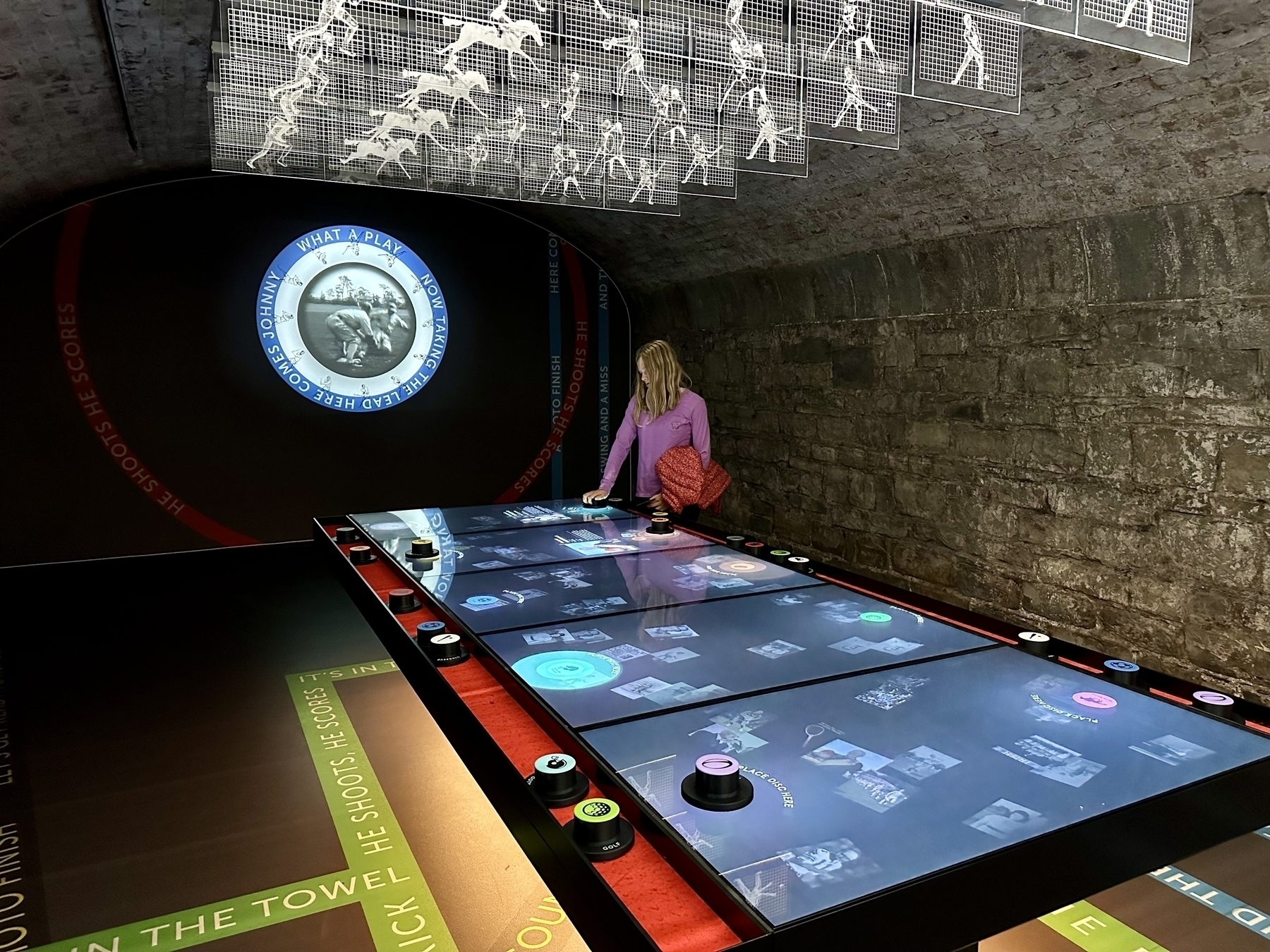
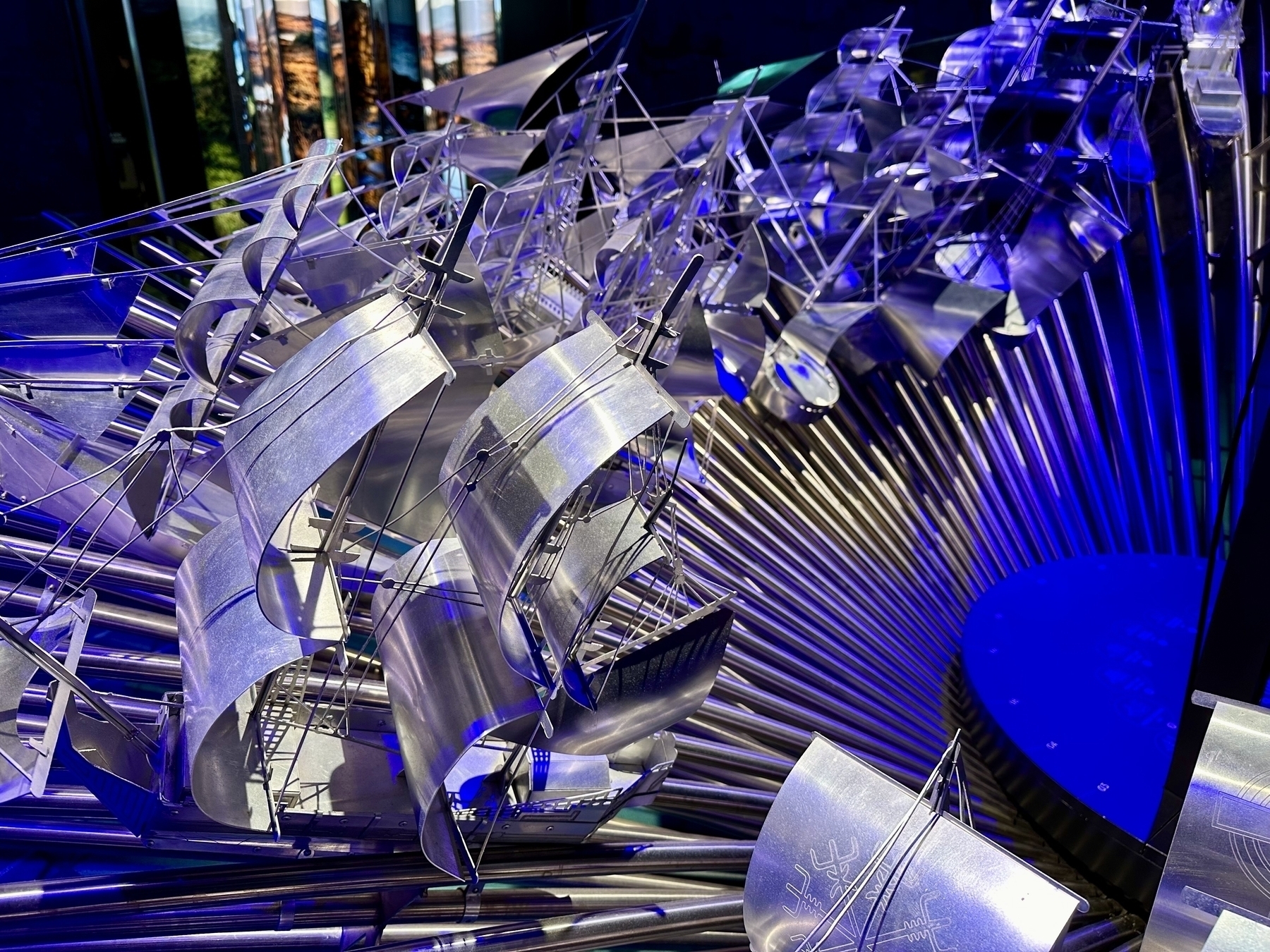
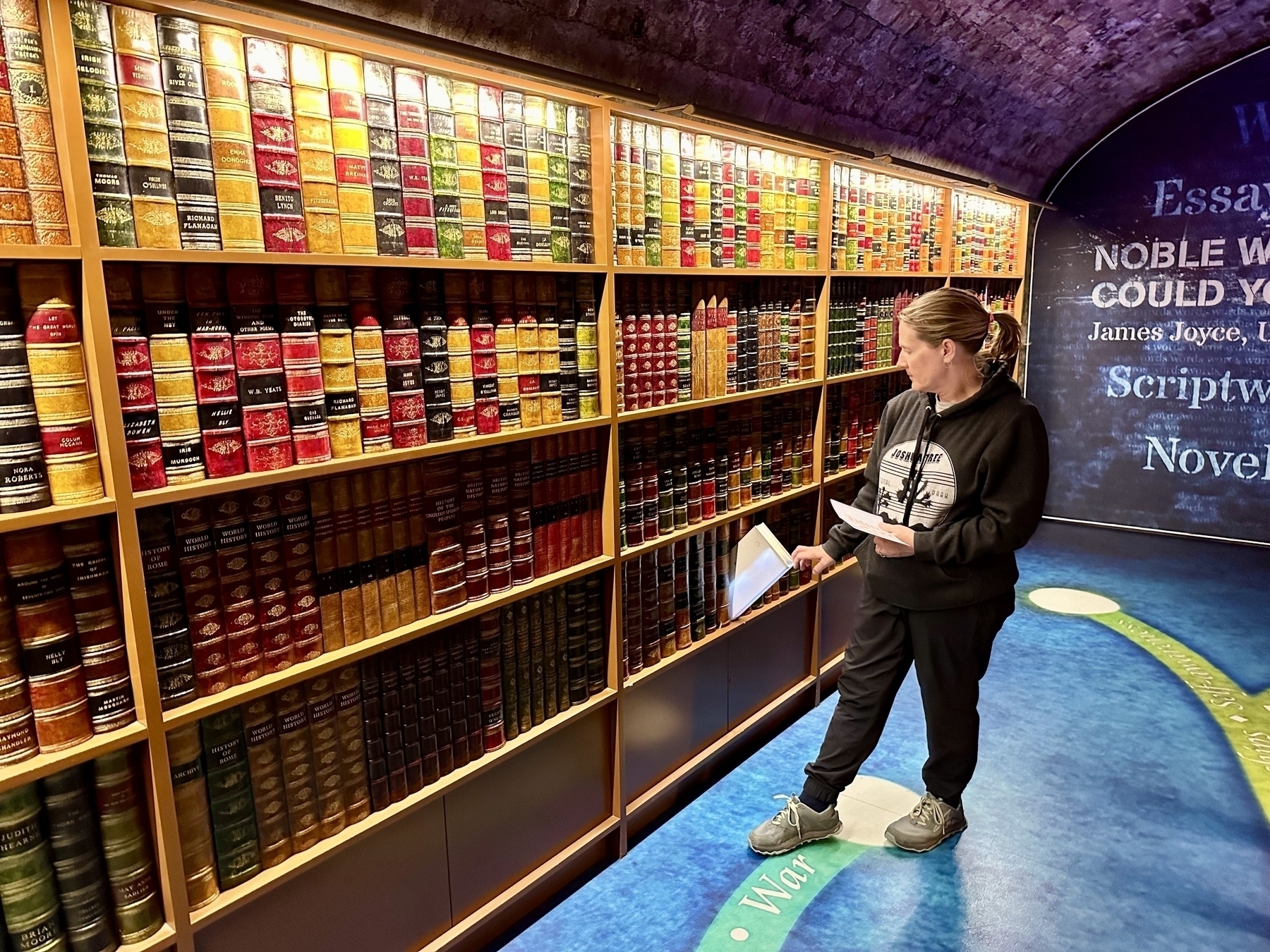
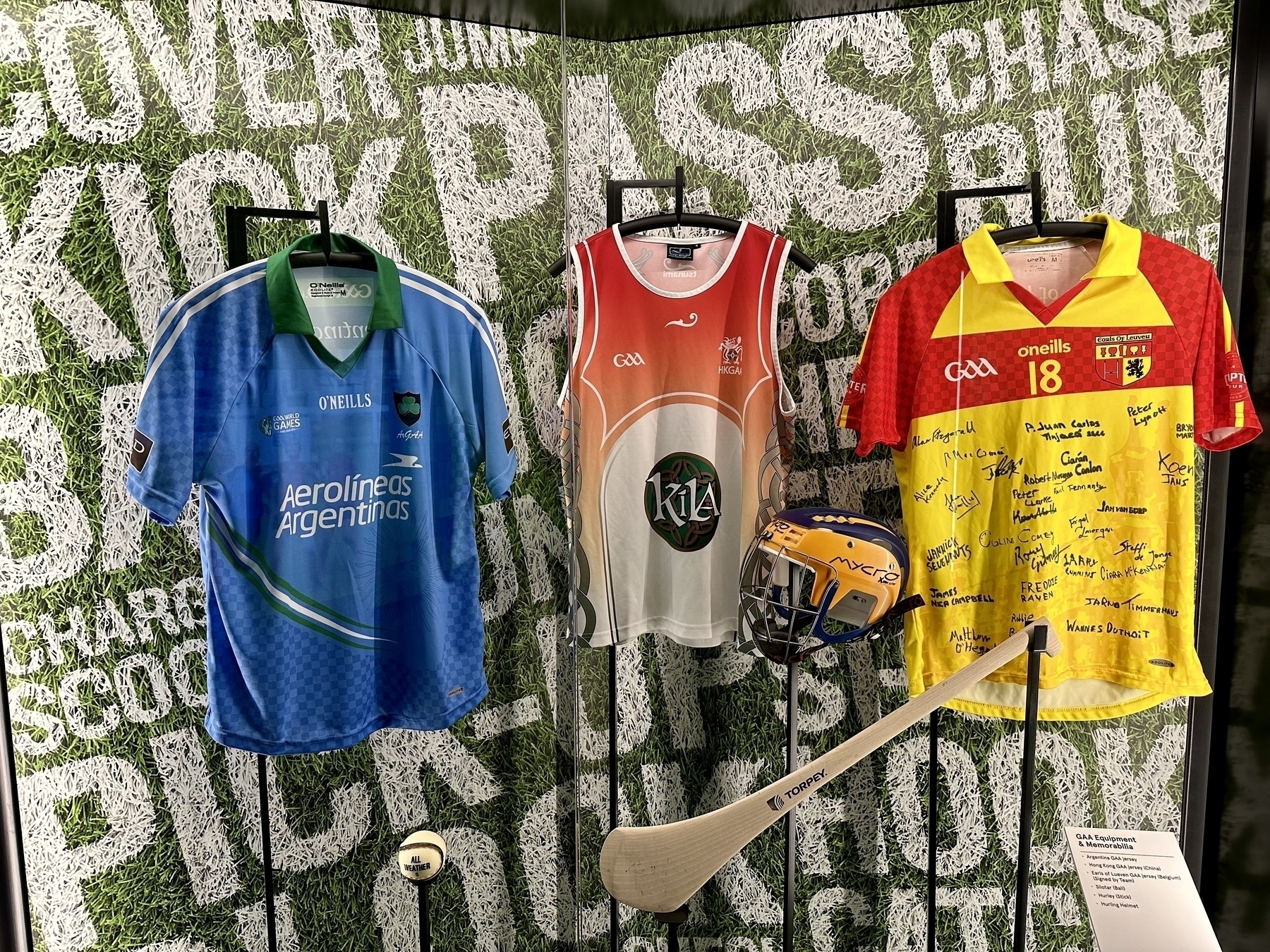
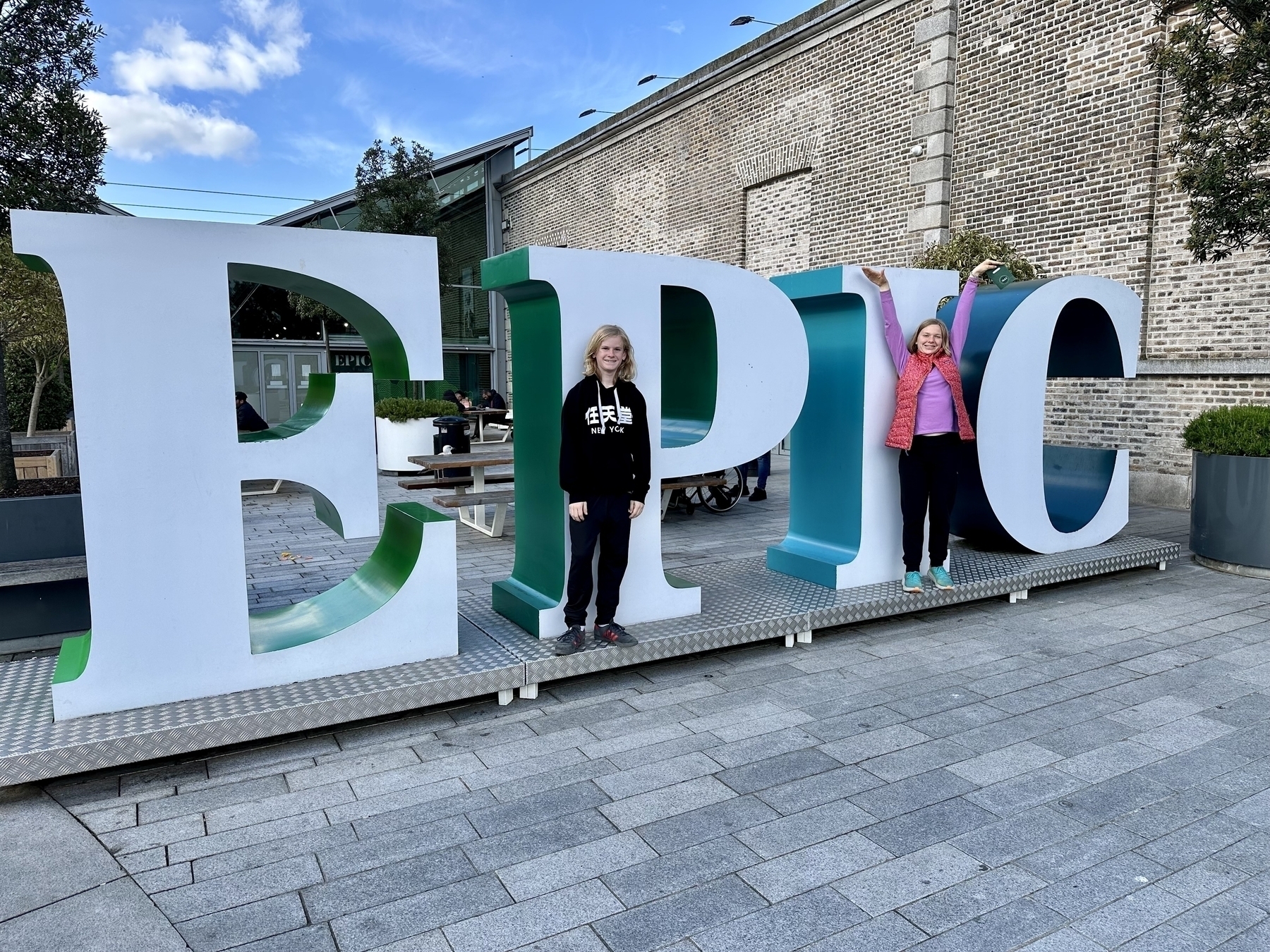
The Temple Bar, in the Temple Bar District, in Dublin.
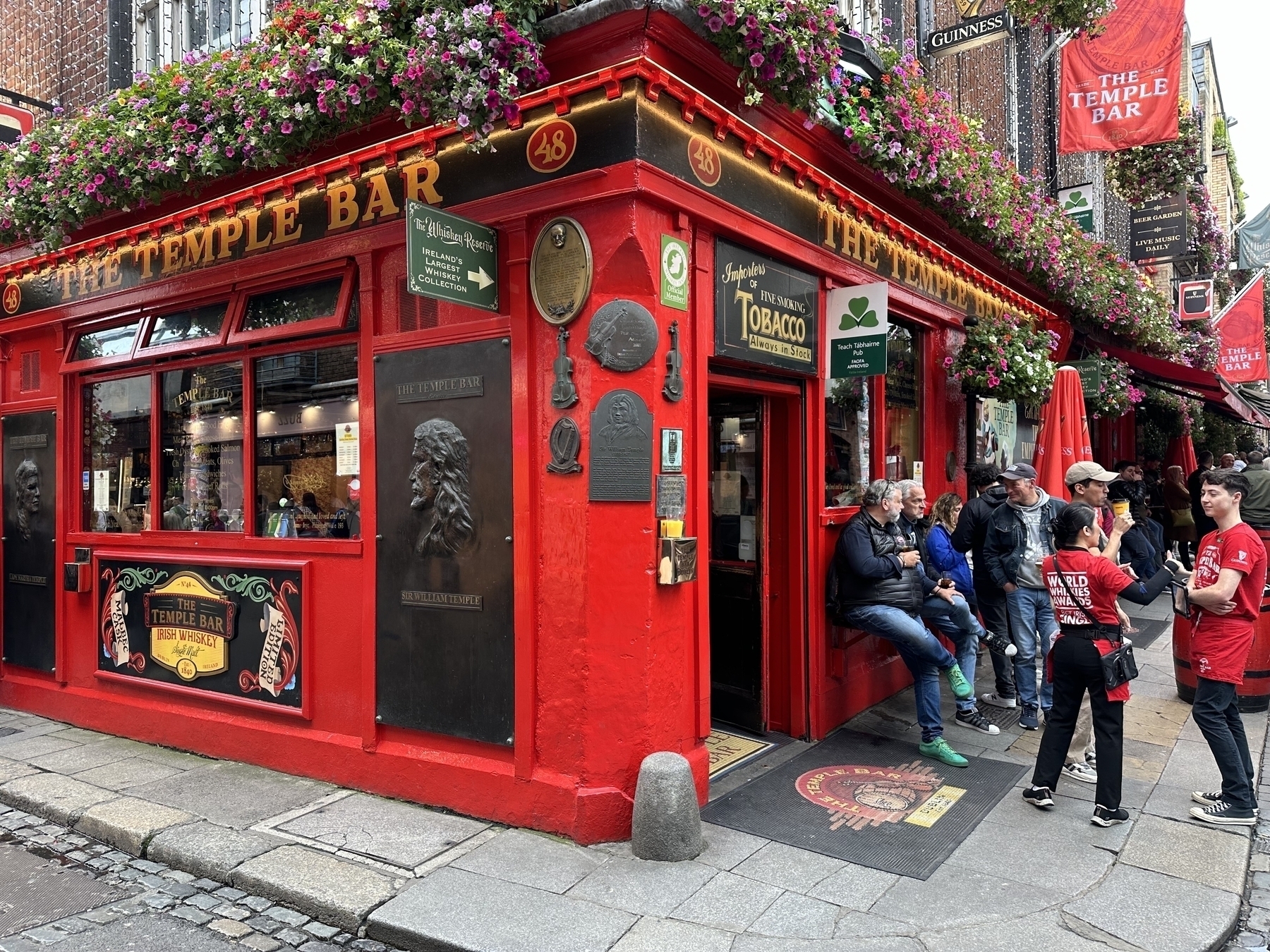
Experience Gaelic Games
This morning after arriving in Dublin we went to Experience Gaelic Games to learn and play some Hurling, Gaelic Football, and Handball. In our time in Ireland we’ve come across Hurling frequently. On day 3 when we were on the lawn at Muckross House we saw a family with these odd stick/bat things hitting a ball around. The Hurley Stick is a pretty common thing. On day 8 when we were hiking with Pat Sweeney he pointed out the County Clare flags that were flying in support of their team taking on Limerick the next day. County Clare was the underdog, and sadly they did not prevail. Sorry Pat!
But Hurling is just one of the Gaelic games. Gaelic Football is another popular one. And while we didn’t see anyone playing Handball that is the third. Things we learned at todays session:
- Hurling is the most popular, with Gaelic Football growing fast right now.
- I loved that all Hurling players “play where they are born”. So you don’t trade players. You play for your club and if you move to the top you play for your county.
- There is no sponsorships. Ticket sales and fundraisers support everything.
- The players just play, they aren’t paid to play.
Wild stuff when you see a Hurling match in action. All of these games are odd amalgamations. We had a lot of fun playing Hurling. Gaelic Football was a bit too easy to think of like Soccer, even though it isn’t at all like Soccer. It was a really fun time learning these sports.
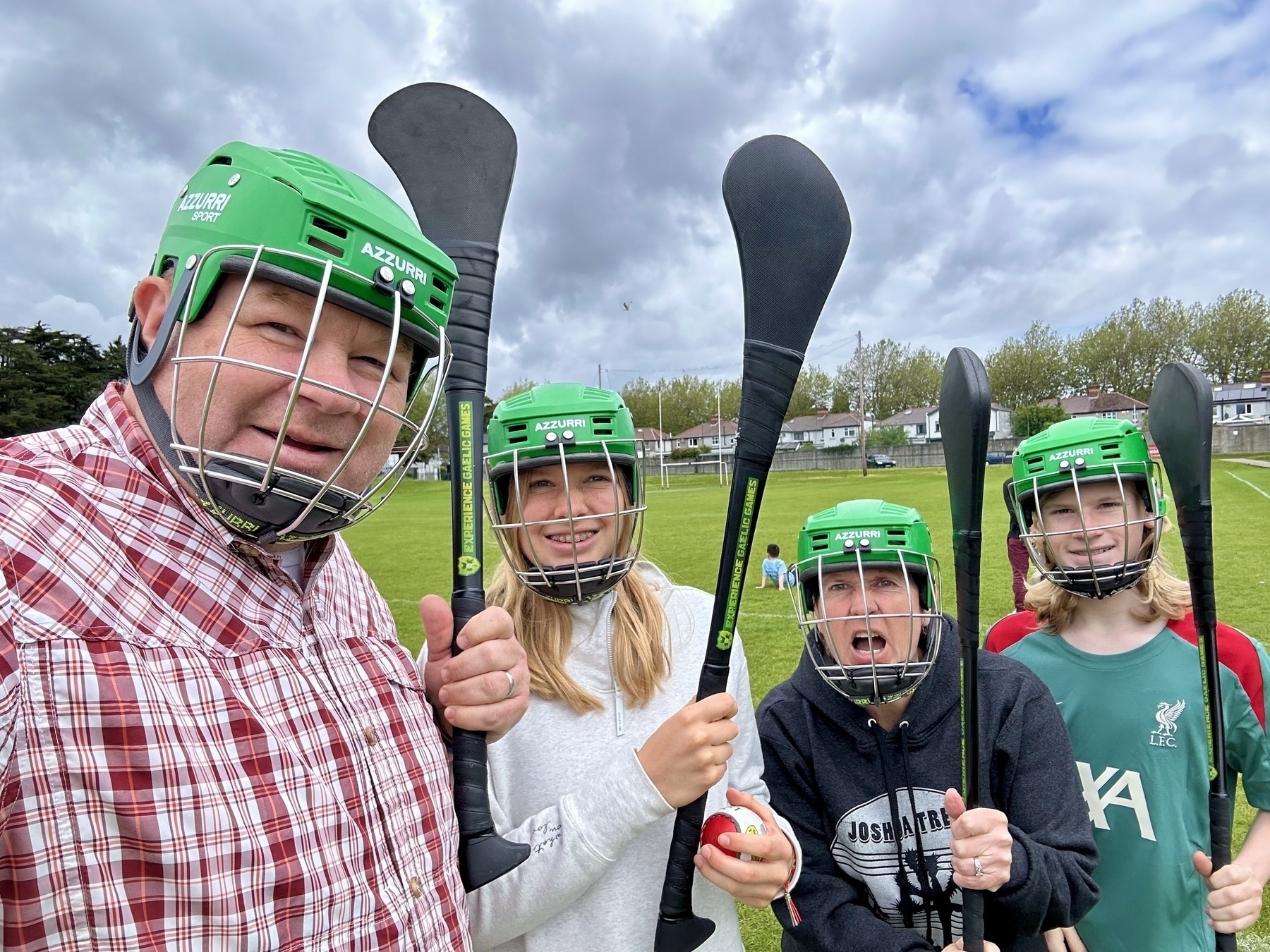
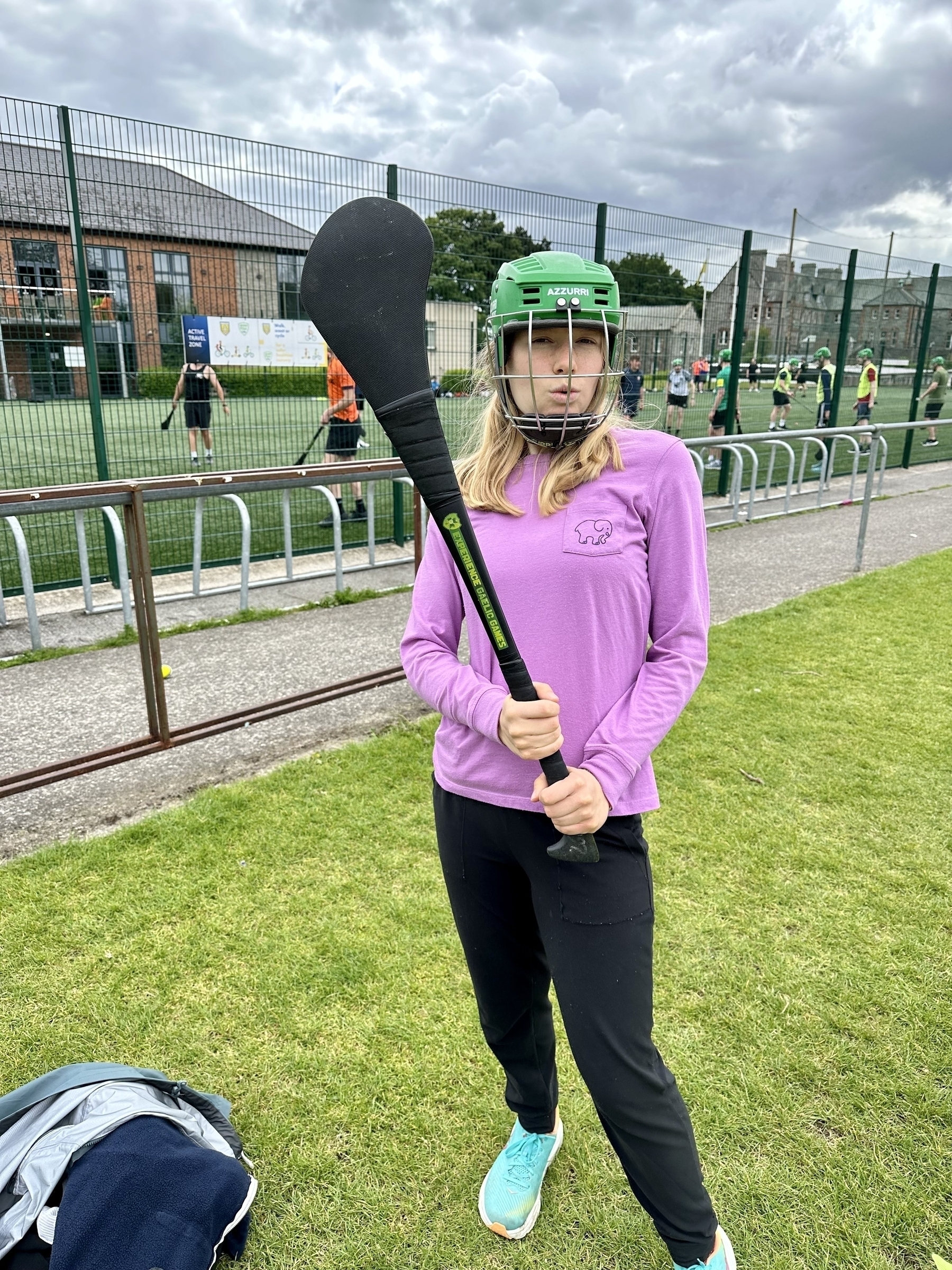
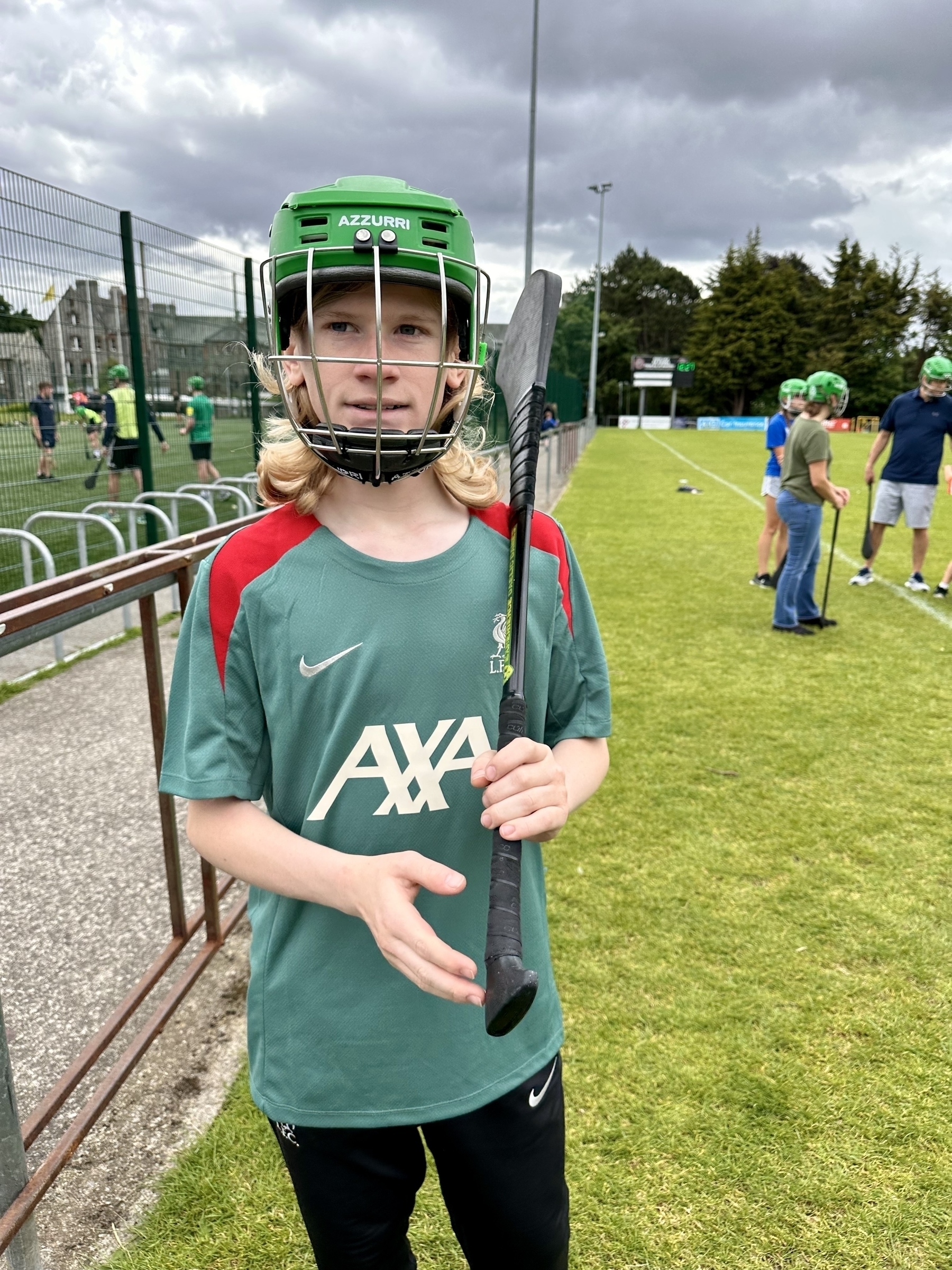
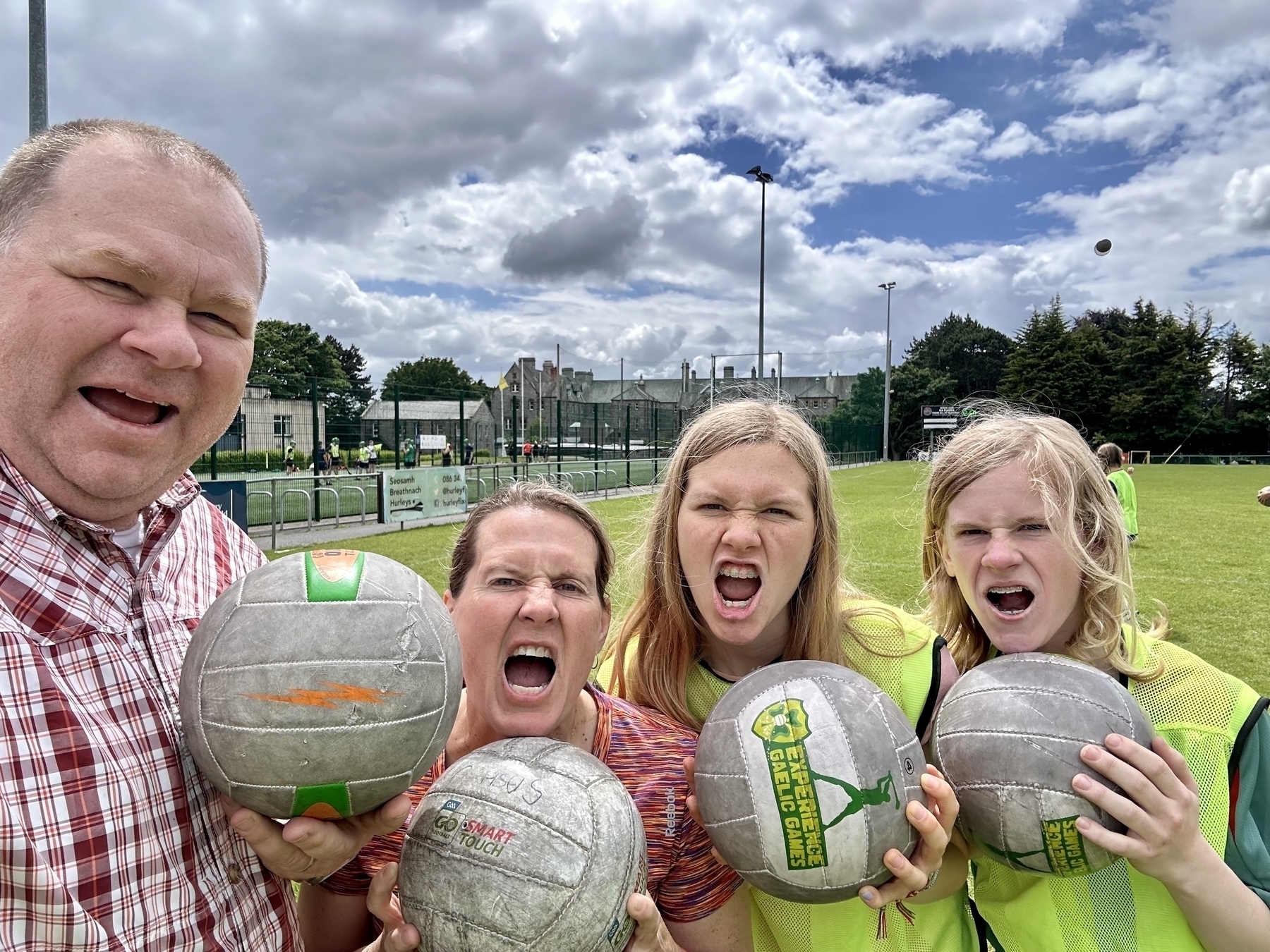
Ireland 2024 Log - Day 14
Weather: Very good, periods of warmth, periods of cold. Was sunny for good portions. Scattered rain shower.
Happy Birthday Mazie! 🎉
- Depart Tubbrid Castle at 8:30 AM for Kilkenny, about 30 minute drive.
- Arrive in Kilkenny early so Mazie can go on a birthday run. Tammy goes on a walk. Tyler and Jamie go to breakfast spot early.
- Cafe La Coco for a delicious breakfast.
- Brief shopping — Tyler gets soccer cleats at Intersport.
- Medieval Mile Museum walk to learn so much about Kilkenny.
- Visit Kilkenny Castle and take self-guided tour.
- Some more wandering around exploring various shops.
- Smithwick’s Experience to learn about Smithwick beer and have a glass of Smithwick Red Ale and Kilkenny Cream Ale.
- Go to Cakeface Pastries to get treats for Mazie’s birthday!
- Wander around Kilkenny visiting various stores.
- Visited the Rothe House and spent most of our time exploring the magnificent walled garden.
- More shopping and exploring for Tammy, Mazie, and Tyler — Jamie stops at The Field pub to get a Guinness and listen to live music.
- Everyone meets at The Field and we walk down to the Nore Valley Path.
- Walk Nore Valley Path to bridge and back.
- Had nice dinner at Ristorante Rinuccini including dessert that came with a candle and rendition of Happy Birthday for Mazie.
- Get car out of car park.
- Drive back to Tubbrid Castle for the night, about 10:15 PM.
Jump to day 1, 2, 3, 4, 5, 6, 7, 8, 9, 10, 11, 12, 13, 14, 15, 16, 17, 18 or see Ireland 2024 Collection.
Great cappuccino at Cafe le Coco in Kilkenny.
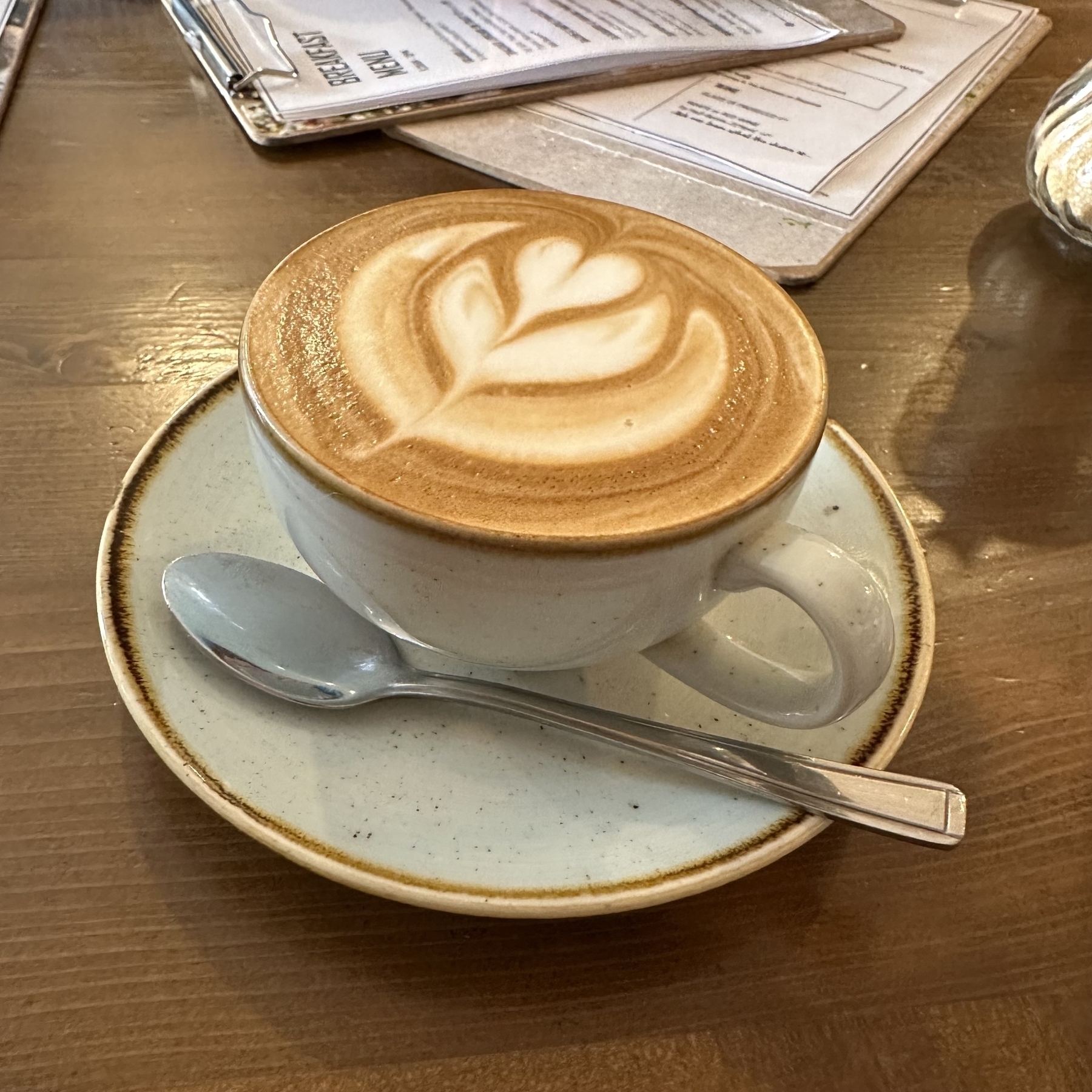
Today’s Guinness isn’t a Guinness, but instead an O’Hara’s Irish Stout Nitro. We had dinner at Brewer’s Corner and they served this delicious pint. Very good!
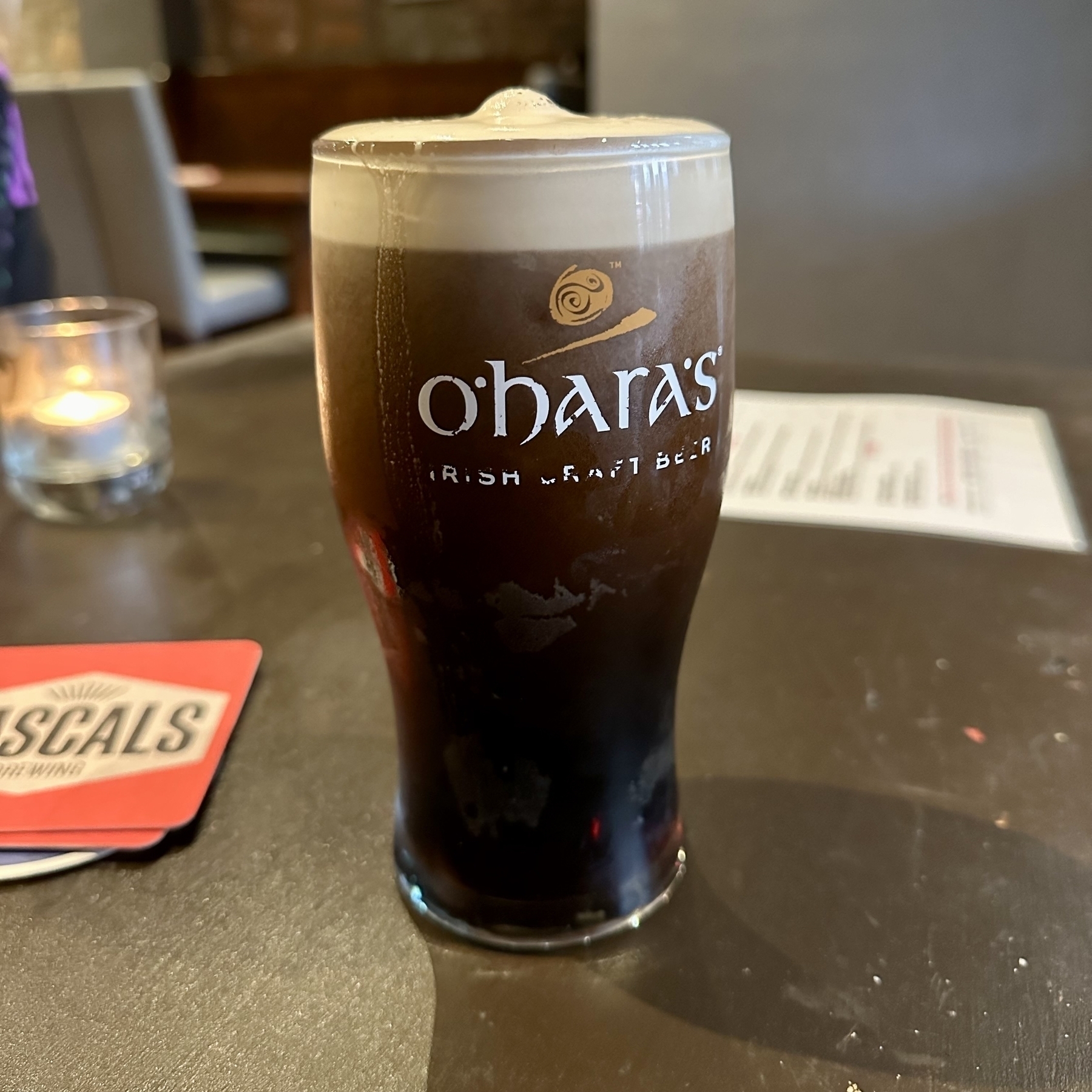
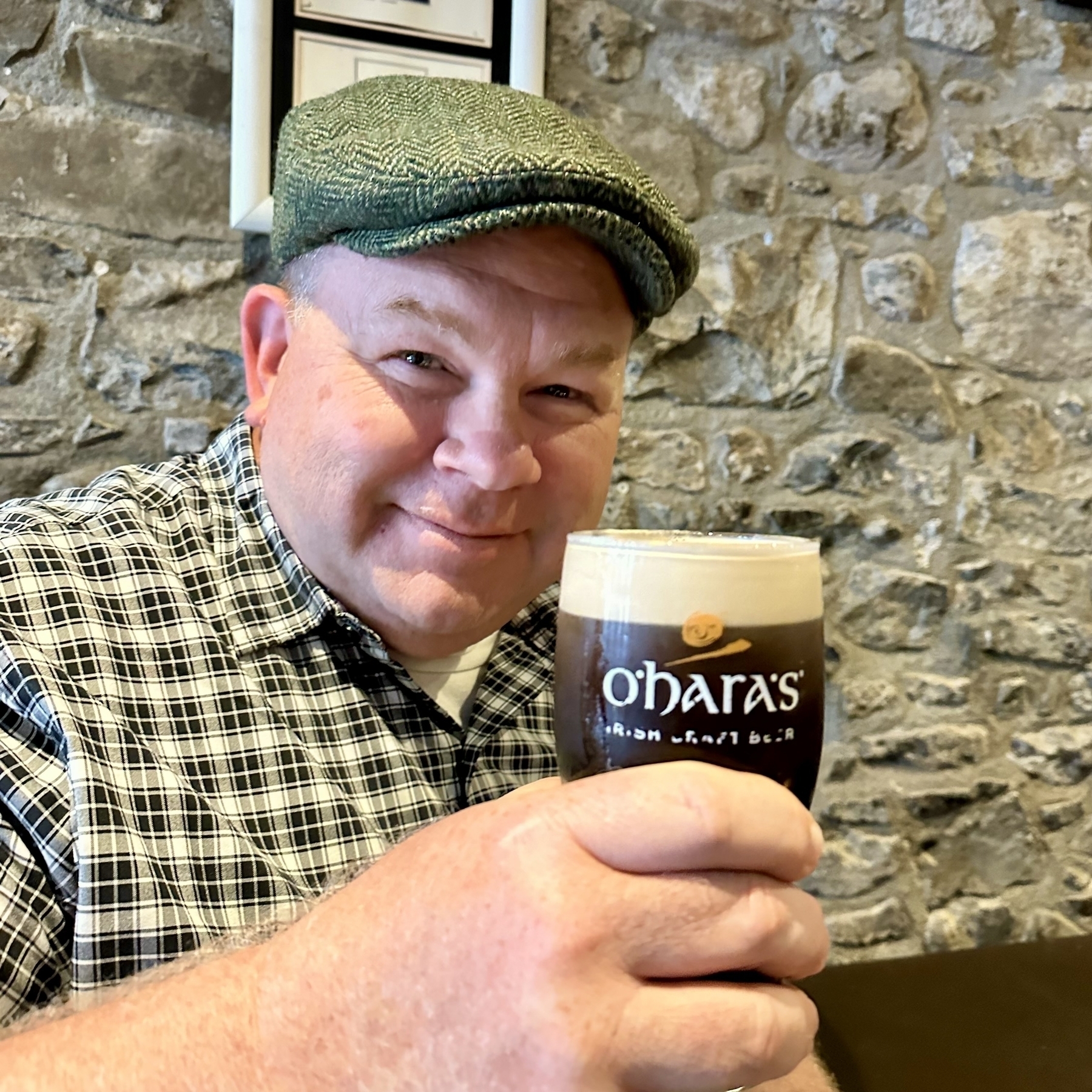
Tubbrid Castle
Tonight we arrived at Tubbrid Castle. This is the most unique Airbnb experience we’ve ever had. This 600 year old castle has been magnificently restored. We are sitting in the second level kitchen, dining, and living areas. The first, third, and fourth levels are amazing bedrooms. The walls are six feet thick. The castle itself is slowly warming now with heat installed for the first time in its centuries of existence. Amazing! I took a number of photos on arrival.
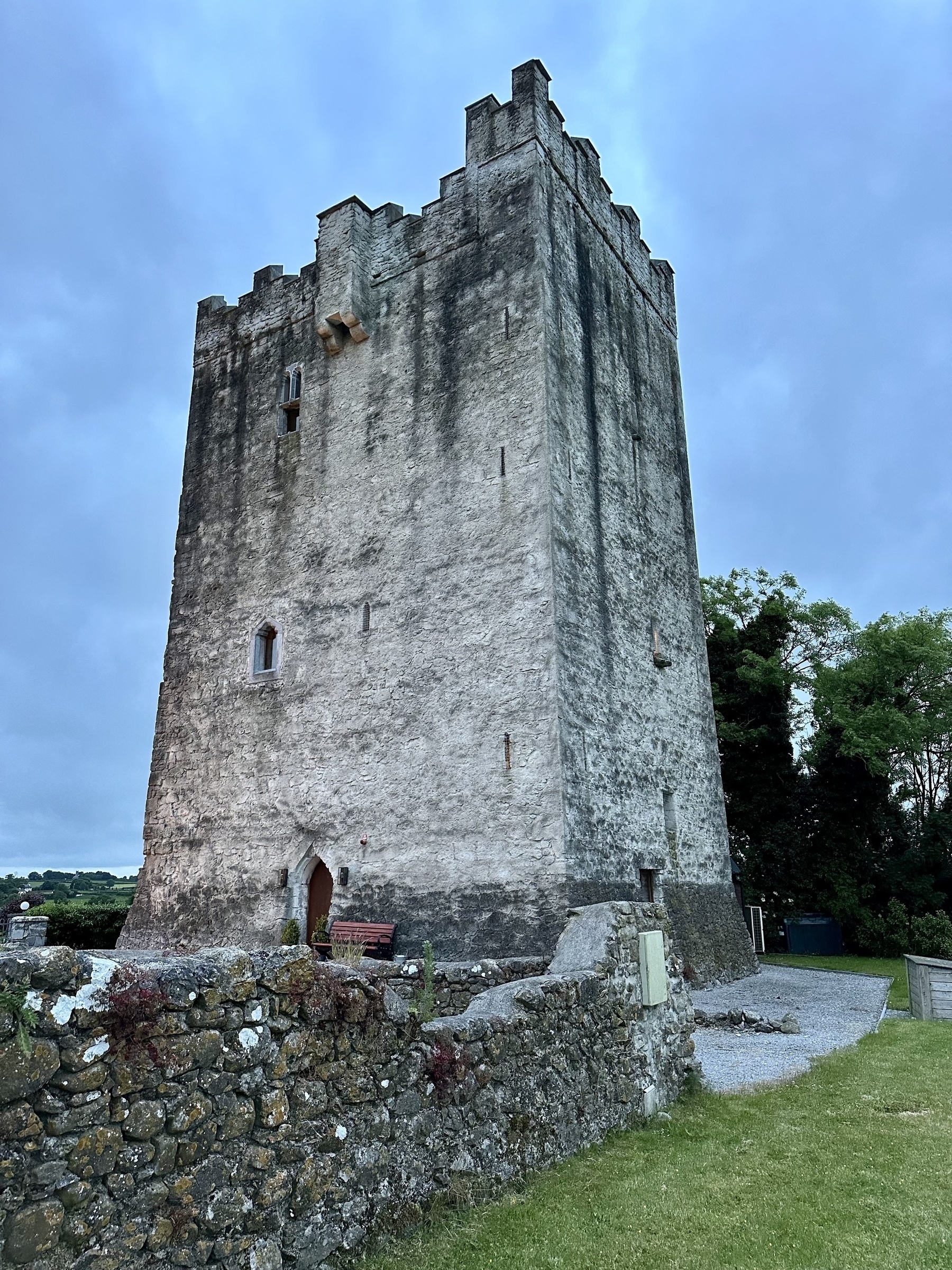
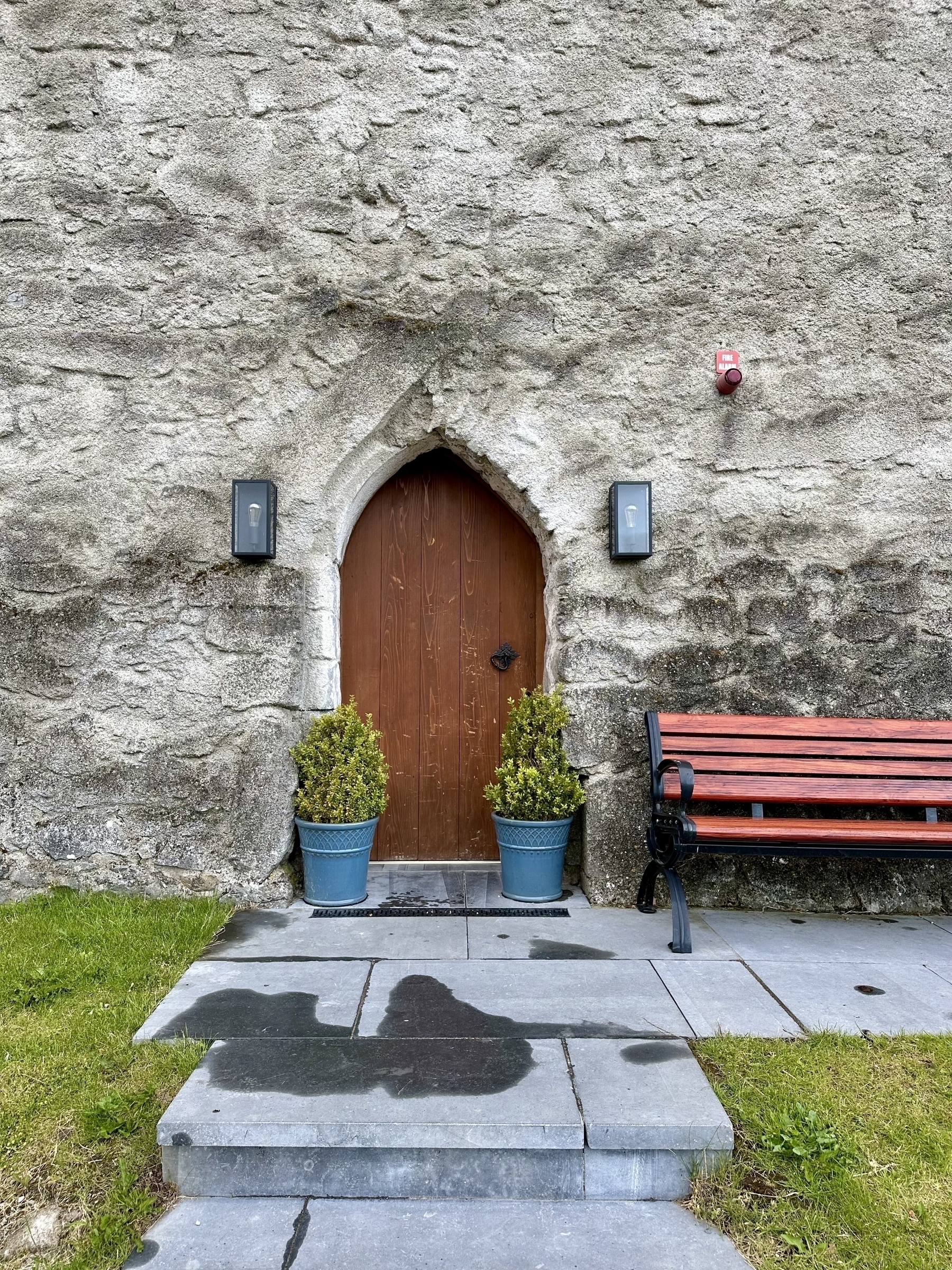
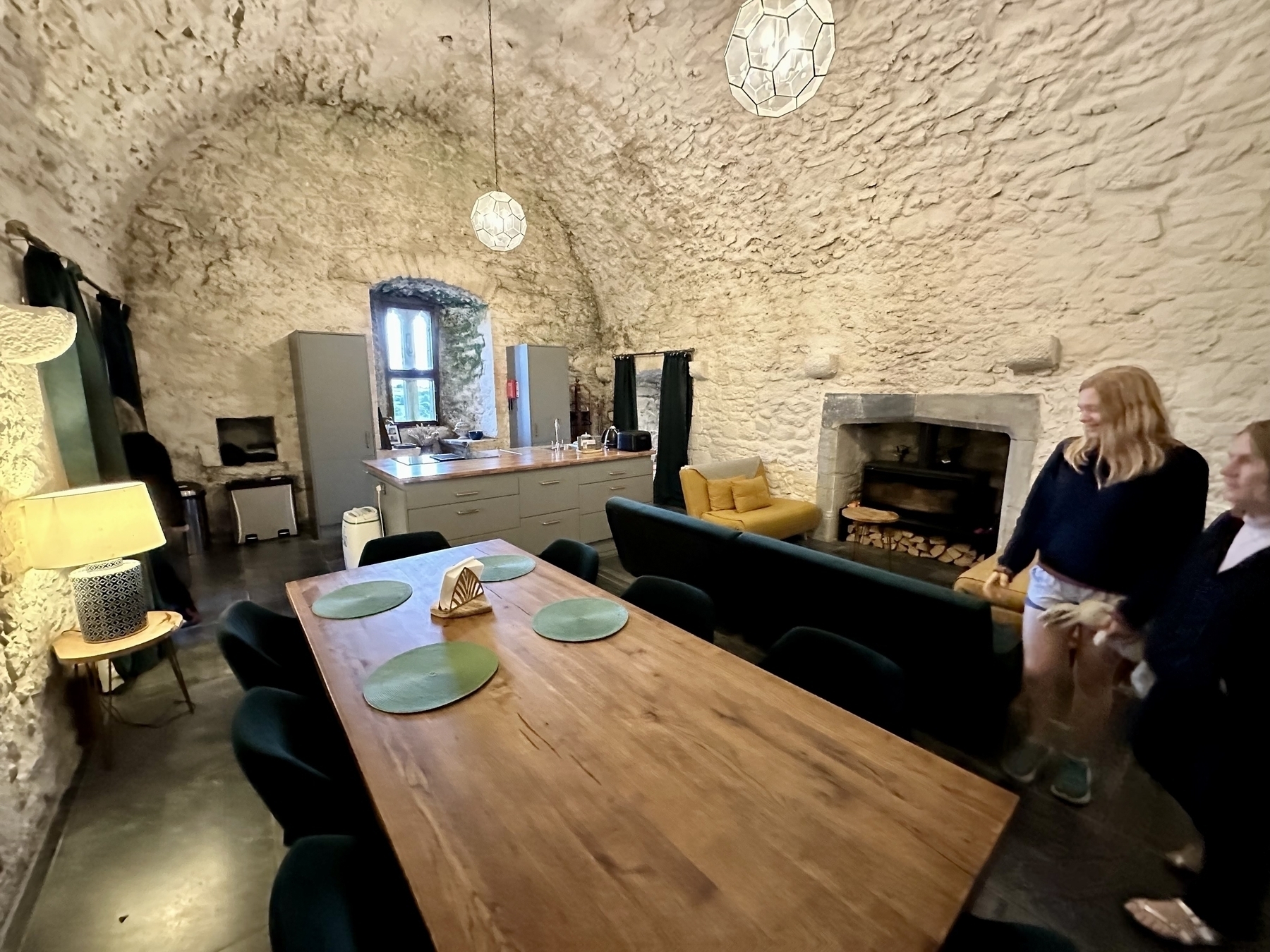
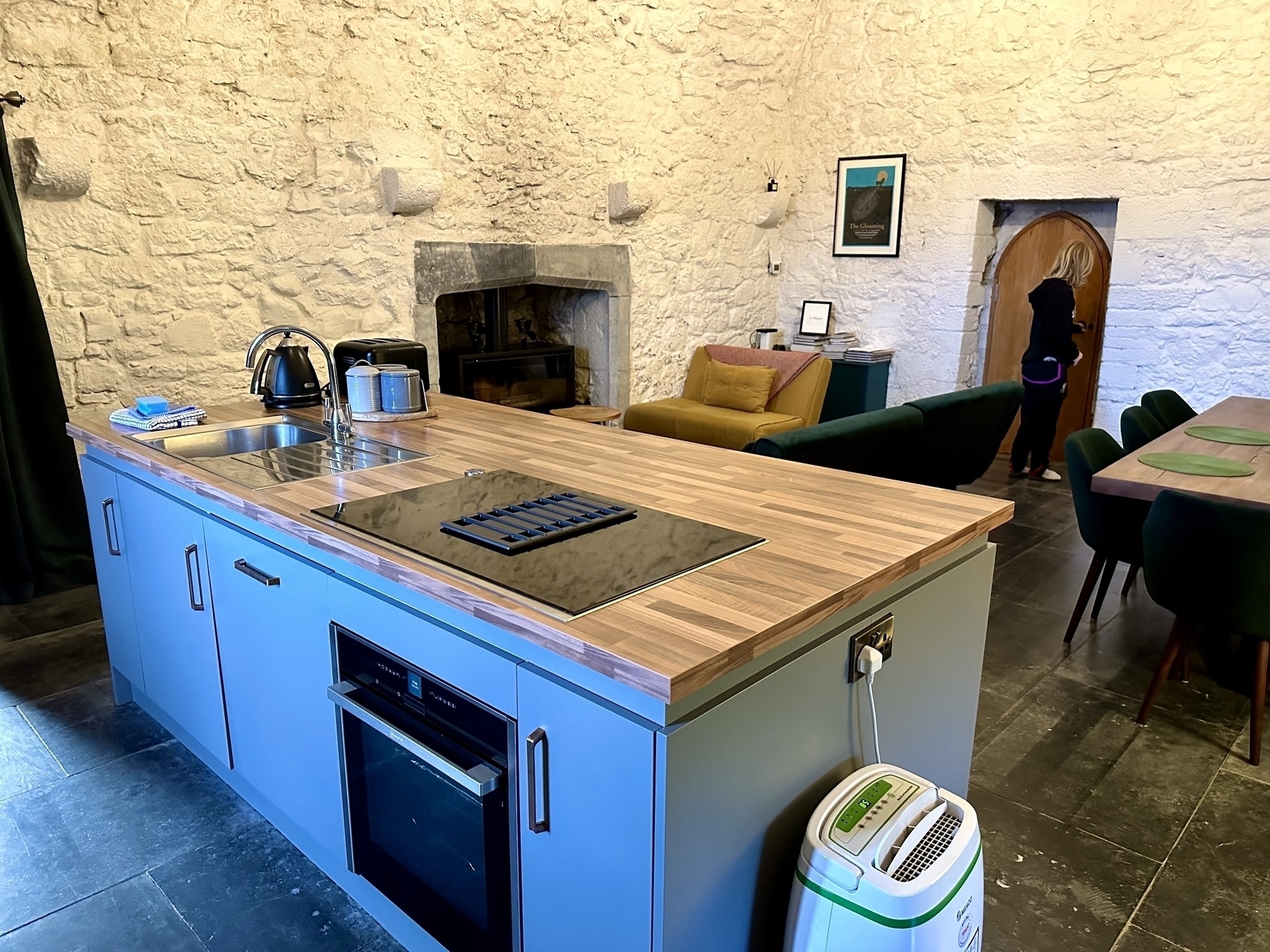


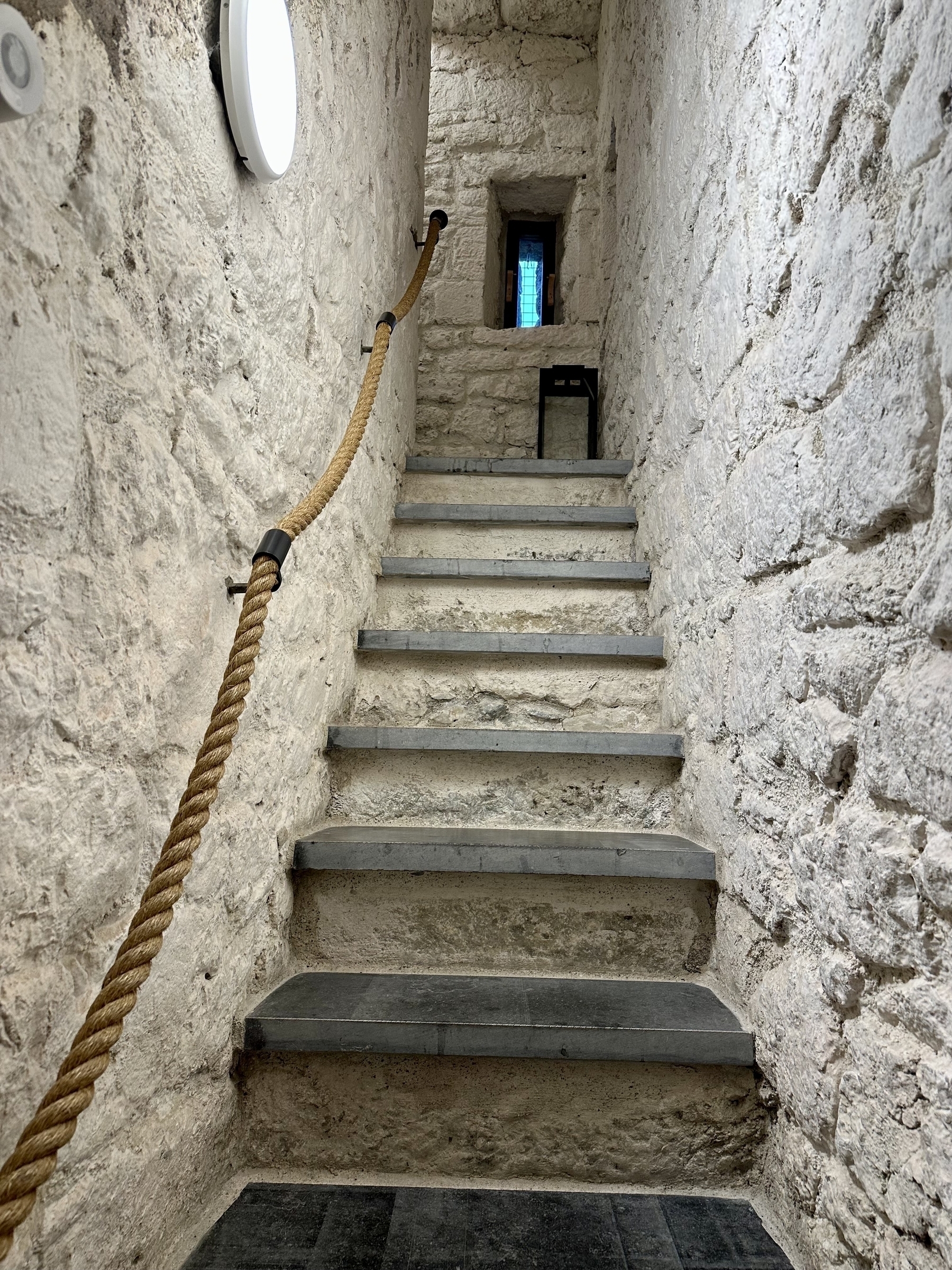

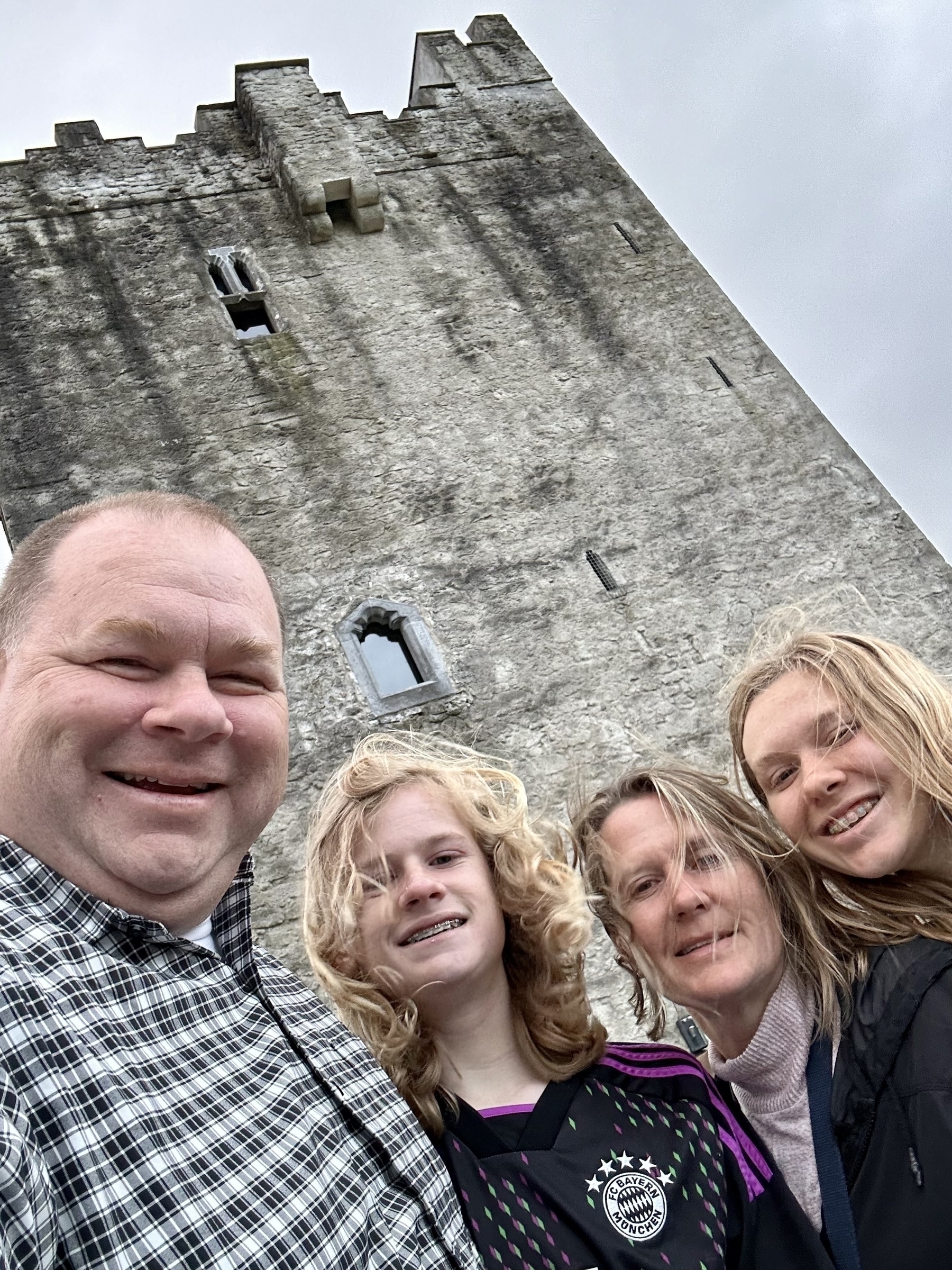
Ireland 2024 Log - Day 13
Weather: Rain. Wind. Crappy. Better as we got further South.
- Tammy and Mazie go for a run in Belfast.
- Continental breakfast in Titanic Hotel.
- Check-out of hotel.
- Visit Titanic Museum.
- Afternoon tea at Titanic Hotel.
- Visit the S.S. Nomadic, a tender for the Titanic.
- Departed Belfast for Kilkenny.
- Crossed into Ireland between Killeen and Dromad.
- Experienced rush hour traffic around Dublin.
- Fastest driving of the day — nearly all divided highways and 120 km/h speed limit.
- Dinner at Brewery Corner in Kilkenny.
- Get Tyler crêpe at Scrumdiddlys.
- Walk around Kilkenny briefly, everything closed for the night.
- Drive to Tubbrid Castle and check-in for our stay.
- Explore all the various areas of the castle.
Jump to day 1, 2, 3, 4, 5, 6, 7, 8, 9, 10, 11, 12, 13, 14, 15, 16, 17, 18 or see Ireland 2024 Collection.
Afternoon Tea at Titanic Hotel
After having such a delightful afternoon tea at Adare Manor we thought we would try another this time at the Titanic Hotel after visiting the museum. We knew that it would not have the grandeur of Adare Manor but thought it would be fun to try. We all felt that it was less fancy, but maybe the desserts were a little bit tastier. The tea was not at the same level but not bad, same with the scones.
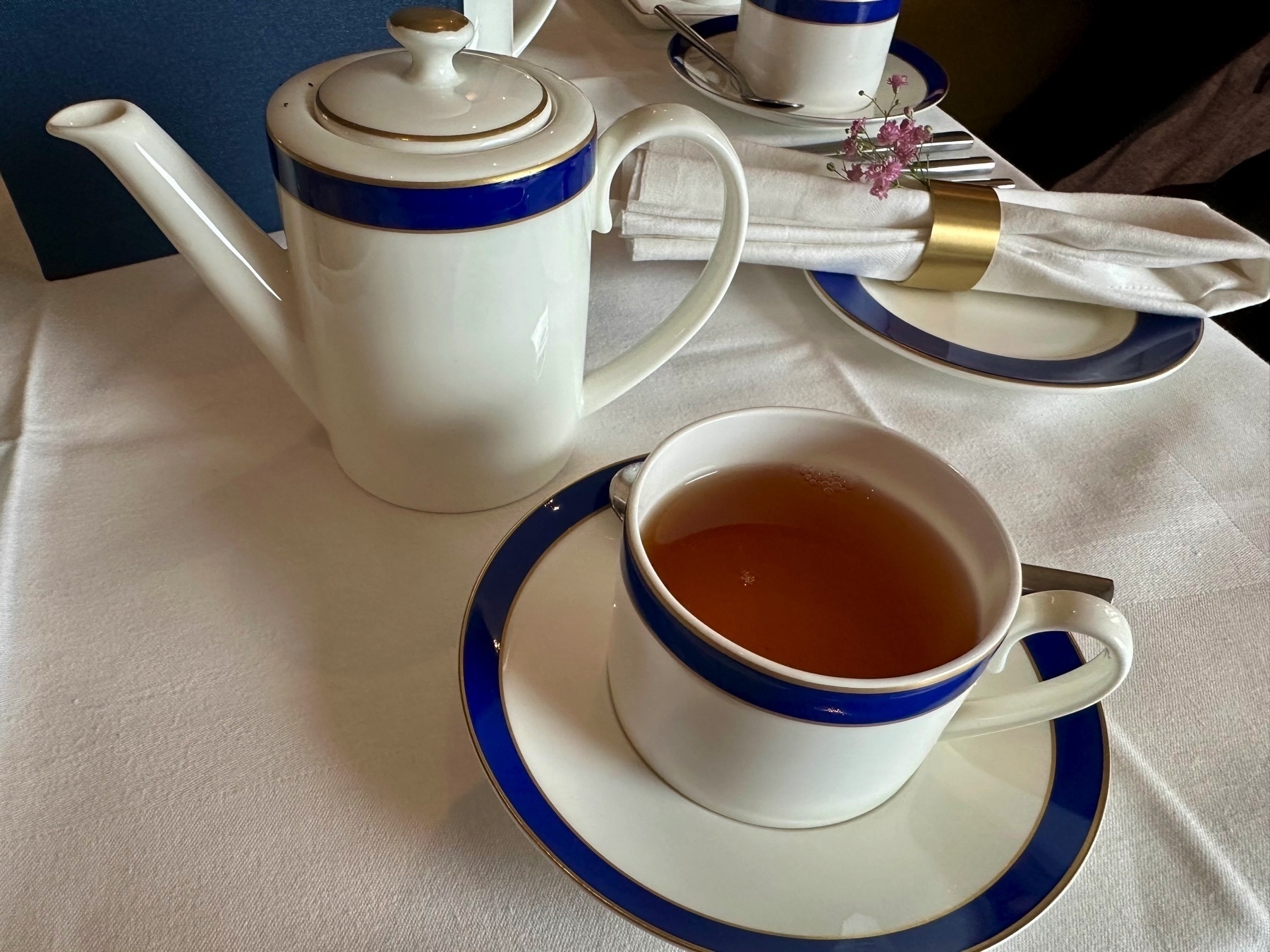
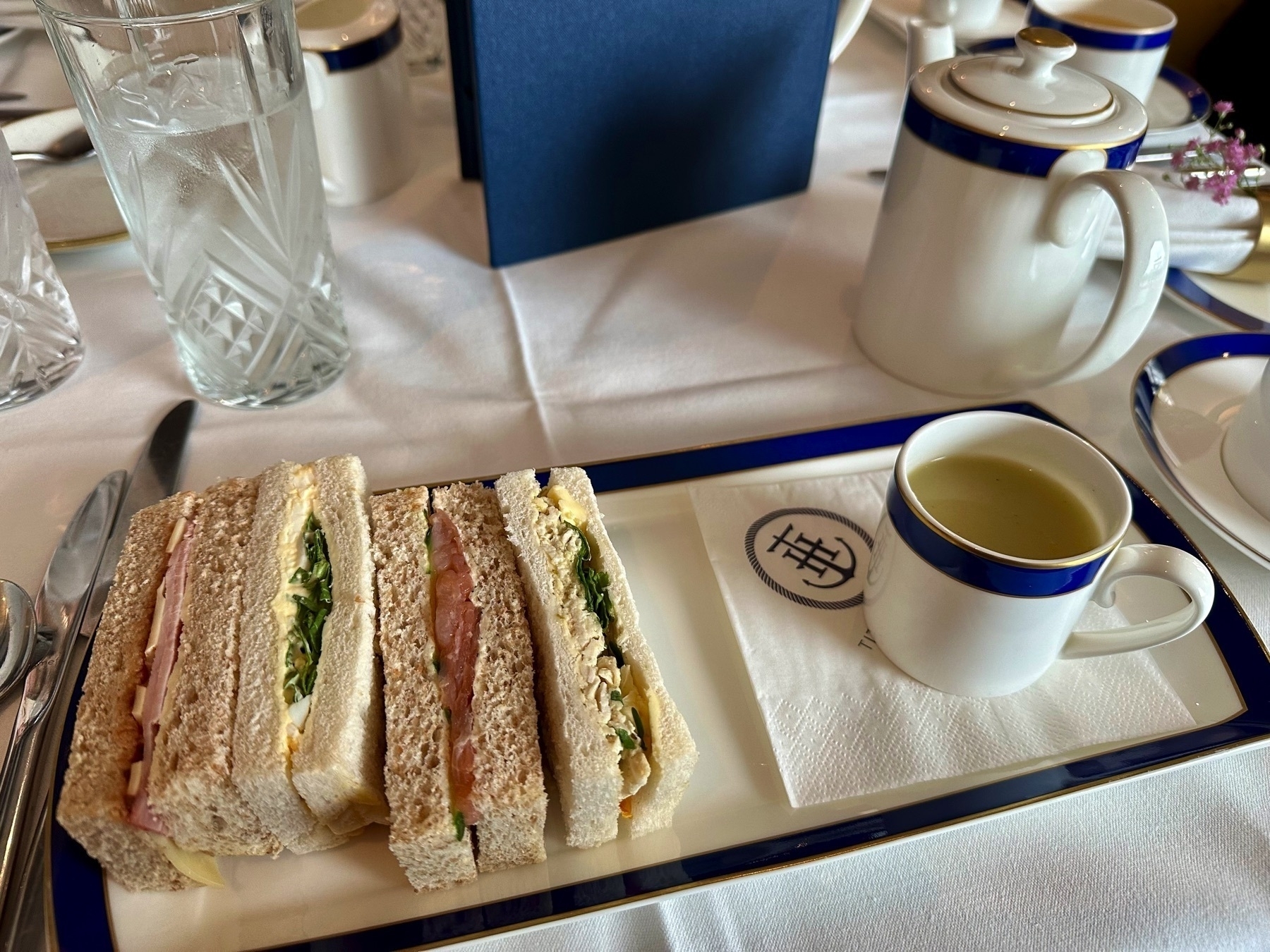

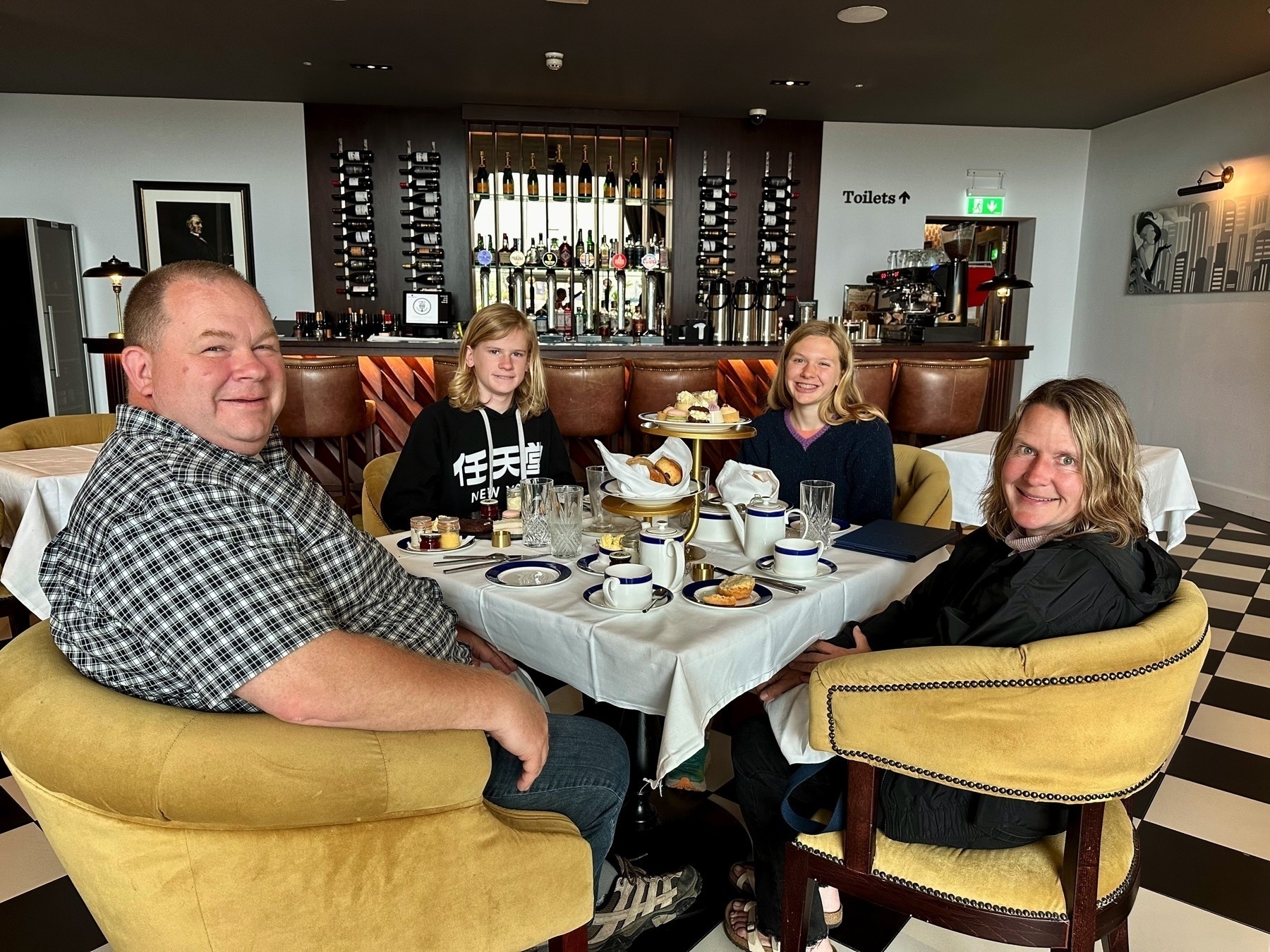
Titanic Museum
Today we visited the Titanic Museum in Belfast. It was an incredible experience, one of our favorites that we have ever visited. The museum itself sits at the end of Harland & Wolff Slip 3, exactly where the Titanic was built. Part of what made this experience so good was the multitude of stories it told. It starts with the booming story of ship building in Belfast. It tells the story of Harland & Wolff and the growth of the company that still is there today. It told the story of the Titanic being built starting on March 31, 1909 and launched May 31, 1911. It also of course told the story of the disastrous voyage, and of many of those that were aboard.
The images of the building of these Olympic Class ships was incredible. The massive scale of everything involved. Just the riveting alone, nearly all done by hand, was miraculous. This incredible museum even has a ride that you can take that shows amongst other things the riveting process in action with workers banging away in confined corners with these white hot rivets. The museum features recreations of First, Second, and Third class accommodations. It really was a wonder, and then it hits the iceberg.
The second half of the museum reminded me a bit of the 9/11 Monument. It tells the story, minute by minute, from radio signals sent and received from the Titanic. In less than two hours this giant ship is lost along with most on board. It was striking to see the giant wall with the names of the survivors above and those lost below. The museum then tells the tale of the search for the wreckage of the Titanic, and in an amazing display shows the top of the shipwreck underneath a glass floor as you stand above it.
It was a truly moving museum, worth the trip to Belfast just to see it. We only had about 2 hours, and could have easily used much more time. We’ll all remember this place for a long time.
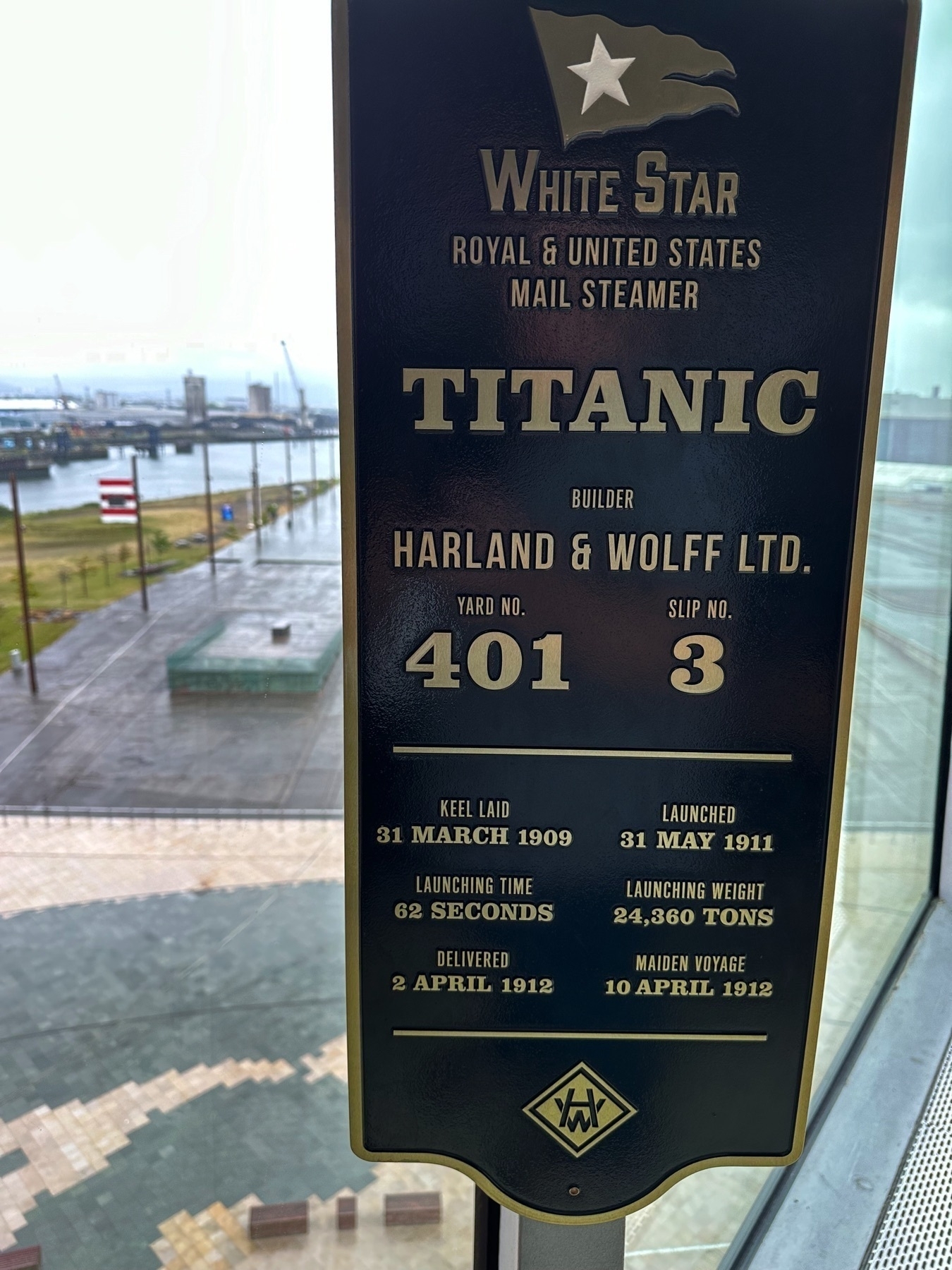


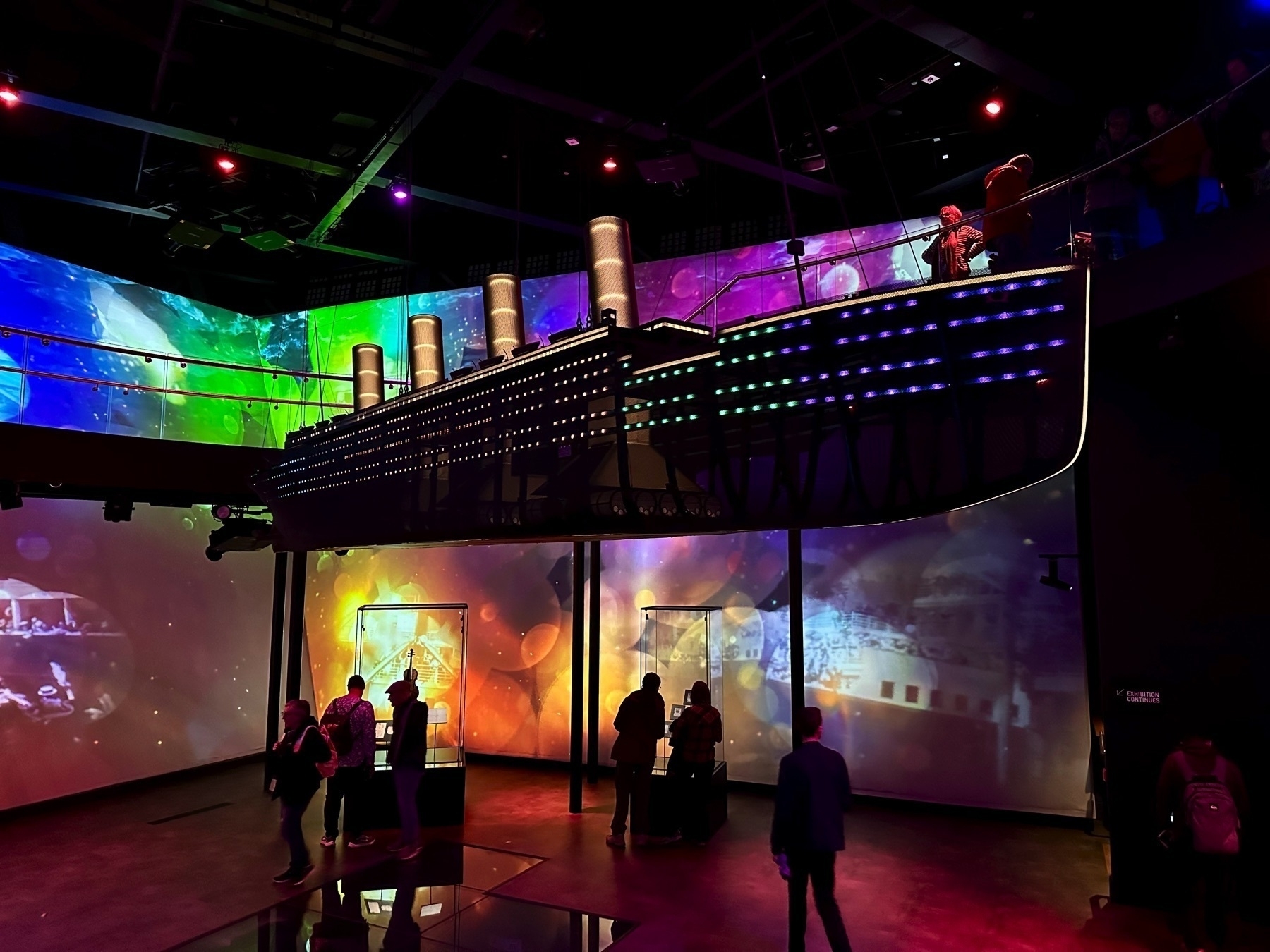
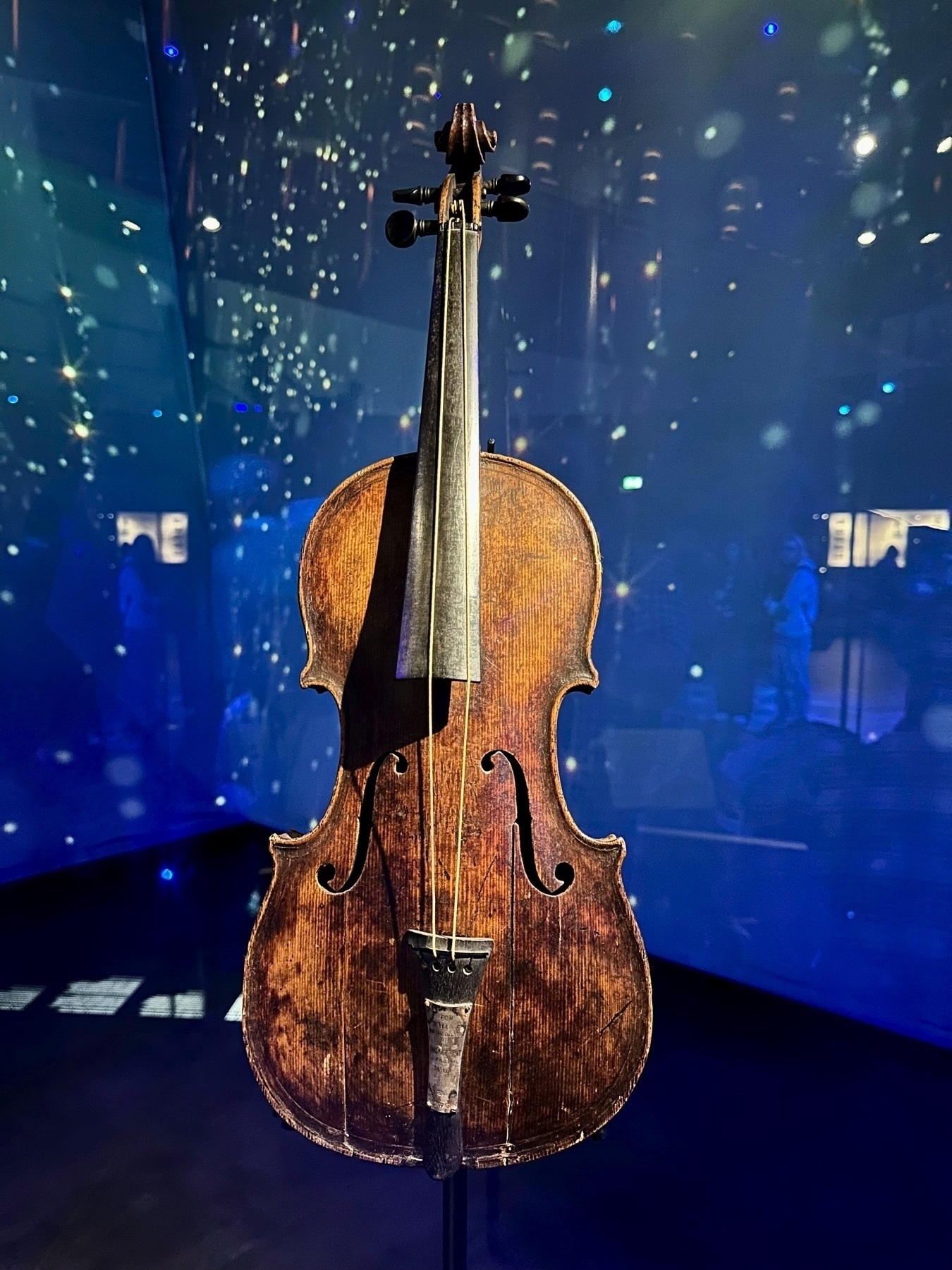

On Day 12 of our Ireland trip and here is our driving path so far. Started in Dublin. We’ve almost made it around the country.
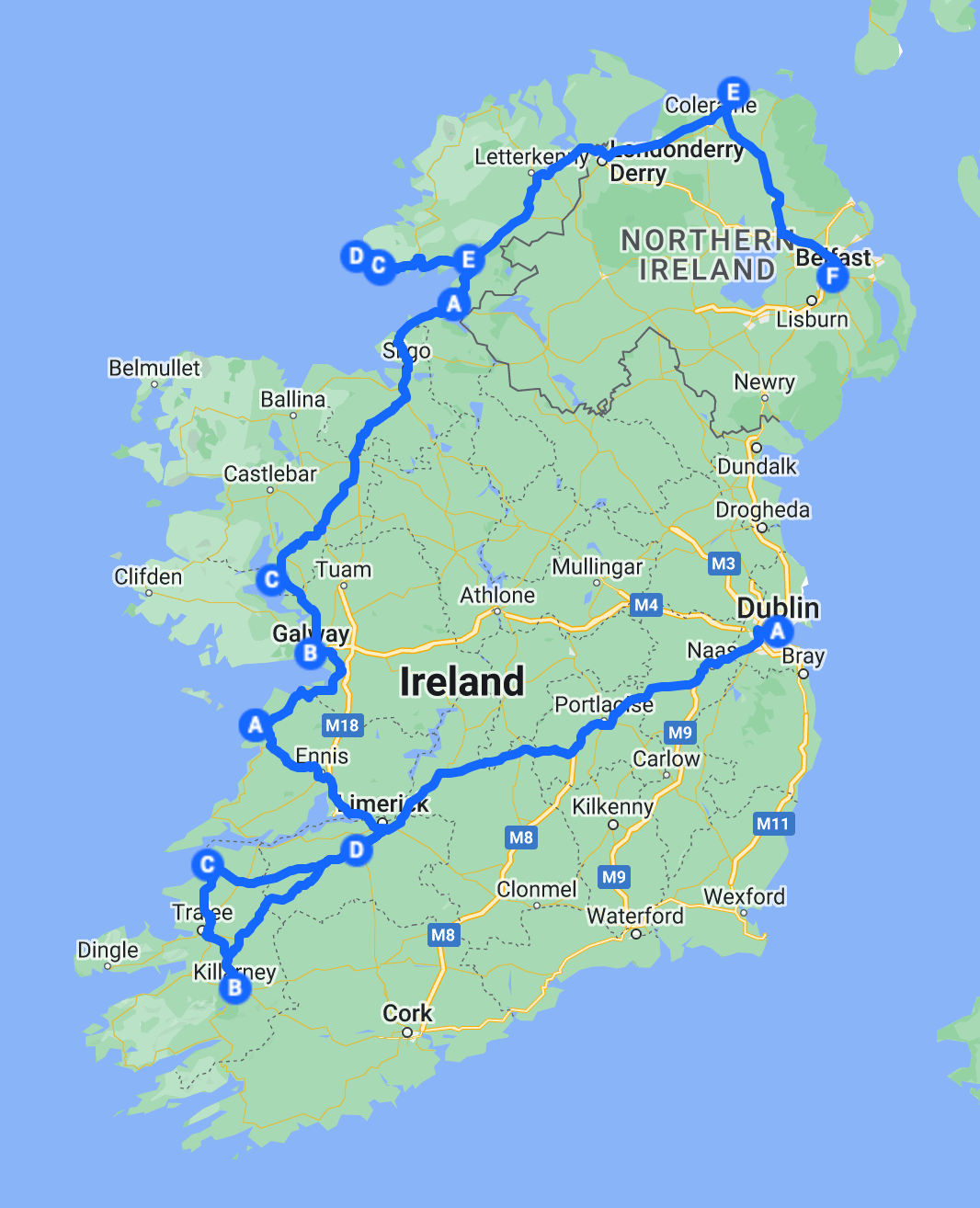
“Influencer Free Zone”. Tunnel entrance in Belfast.
